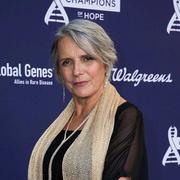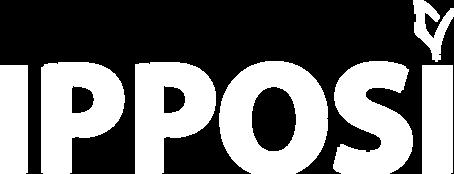THE VERDICT OF THE CITIZENS’ JURY ON THE FUTURE USE OF GENOMICS IN IRELAND

This
has been
who served
by

together with members of the
Jury
June


This
has been
who served
by

together with members of the
Jury
June
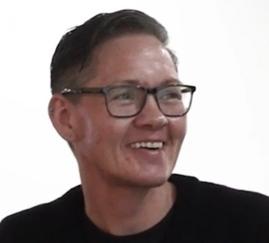
We – the jury – are the 24 members of the public who were randomly selected (from over 500 expressions of interest) to take part in the IPPOSI Citizens’ Jury on the Future Use of Genomics in Ireland.
In May and June of 2022, we spent more than 16 hours together - hearing testimony from nine expert witnesses, cross-examining evidence, and deliberating as a group around three key questions - to arrive at one verdict on the future use of genomics in health care and health research in Ireland.
We hope that health partners, policy makers, and service managers will give our recommendations careful consideration and that our perspectives and preferences will be reflected in future legislation, regulation, strategy, policy & practice around this topic.
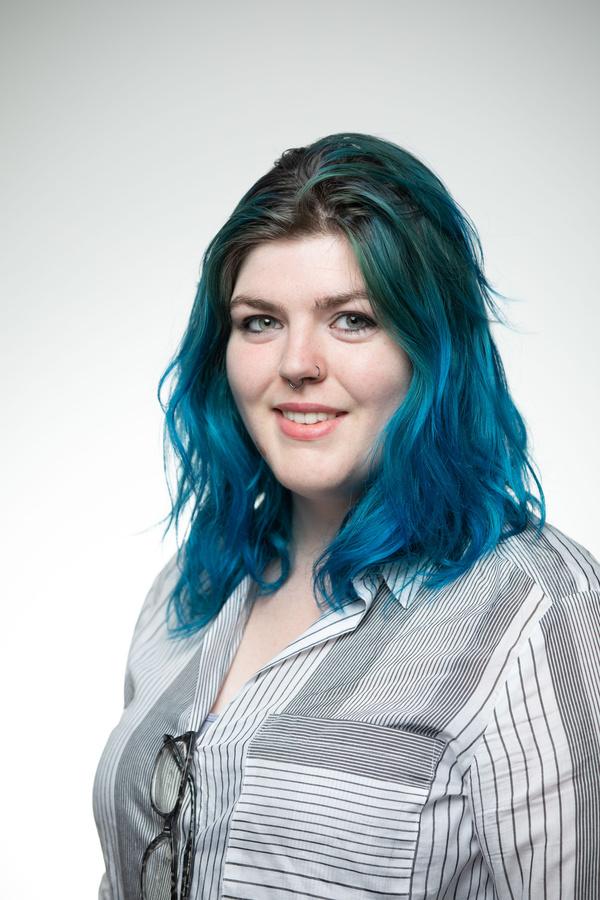
"It was an honour to be able to contribute to this important debate around the future of genetics and genomics in our health care system. I really enjoyed working with such knowledgeable, articulate, and passionate jurors, exploring the presenters' topics, debating the issues, and generating our recommendations. The final report is an excellent reflection of the messiness of real conversations about these complex topics, and I hope it proves informative to all who read it."
*Darragh and Eva supported the independent rapporteur in reviewing the draft recommendations and in finalising the text of this report. We thank them for all their support!
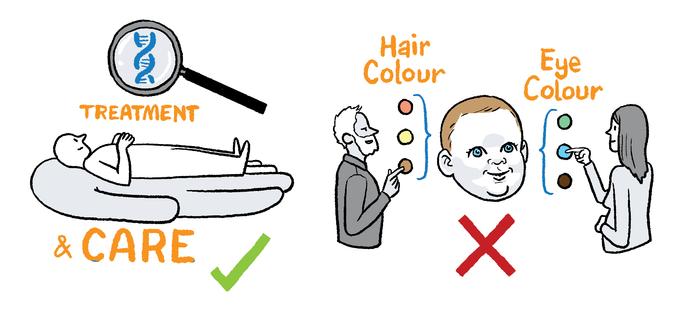
Jurors decided that genomics should be used in health care in a targeted way for the purpose of diagnosing and treating disease, but not for aesthetic purposes. The option to share genomic data with health research should be decided on an individual basis and follow a clear consent process.
Jurors proposed that Ireland establish a national genomics database to securely store and manage genomic data. Any breaches or misuse of data should be met with serious consequences. An Ombudsperson should be created to receive and respond to complaints from individuals.
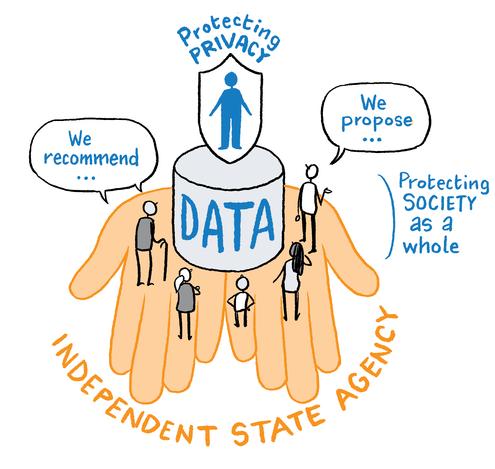
Jurors agreed that Ireland should develop a national genomics programme based on a trusted partnership between the public and private sector. The implementation of the programme should be directed by a new state-appointed national genomics agency.
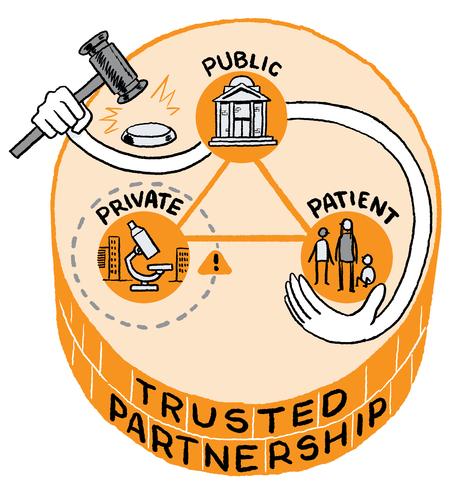

Jurors maintained that individuals should be able to view and manage their own genomic data. People should be asked to 'opt-in' to share their data, and a consent process should provide individuals with the time and information needed to make an informed decision.
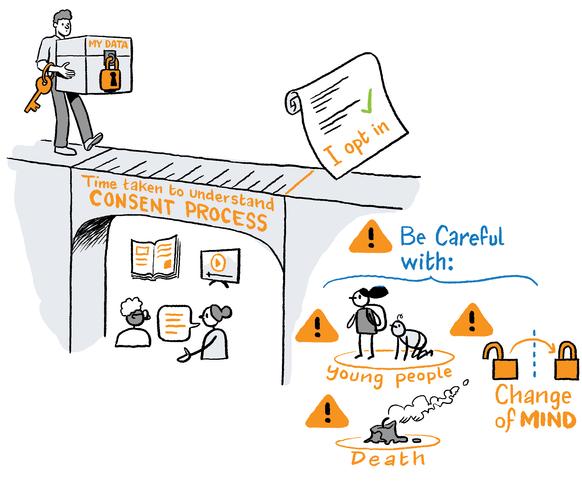


Jurors underlined the importance of engaging the public in decisions about our collective health future. Public information and education should accompany engagement to allow for meaningful, sustained and inclusive engagement.
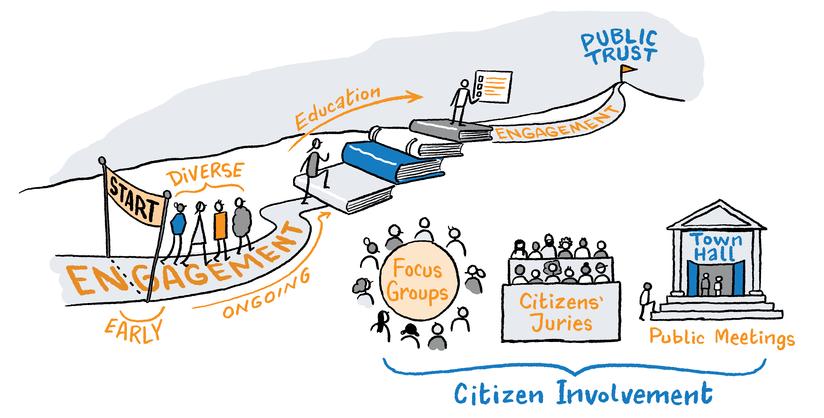


Thehumangenomewassequencedin2003.Ittook13yearsanditcostapproximately $3billion.Today,wecansequenceagenomeforlessthan€1000.
Followingthisscientificbreakthrough,manycountries(suchasUK,Finland,Germany) begantoestablishtheirownnationalgenomicprogrammesorresearchprojectsto supporttheuseofgenomicsinhealthcareandinresearch.InIreland,thereiscurrently nonationalgenomicsprogramme.
In2016,areportwaspreparedbyProf.OwenSmithandsubmittedtotheHSEarounda futurevisionforgenomicsuseinIreland.Thereportmadesixrecommendations:
Weneedawhitepaperongenomics
Weneedageneticsandgenomicsnetworkcouncil
Weneedanationaldirector(intheHSE)forgeneticsandgenomics
Weneedadirector(intheHSE)forgeneticandgenomicdiagnosticsandtreatments
Weneedabusinessmanager(intheHSE)
Weneedanelectronichealthrecord
TheGovernmentrespondedinpart,andthe2018HSEServicePlanincludeda commitmenttorecruitindividualstothreepostswithresponsibilityforfurther developingandprogressinganationalagendaaroundgenomics.Todate,the recruitmentprocessfortheseroleshasbeenunsuccessful.
In2022,theHSEestablishedaNationalGeneticandGenomicStrategySteeringGroup. TheGrouphasbeentaskedwithdevelopingaNationalStrategyforGenomics.The Ministerhaspubliclycommittedtofundtheimplementationofthisstrategyfrom2023
WorkonthisstrategystartedinMayandcontinuesintotheautumnofthisyear.Four sub-groupshavebeenestablishedtoguidethemainSteeringGroup,andeachofthese sub-groupsincludetwopatientrepresentatives.Thereissomepatientrepresentation ontheSteeringGroup,andthereisnocitizen/public/layrepresentation.
Thereareseveralmajorcapitalinvestmentsinhealthunderwayacrossthestate,suchas theNationalChildren’sHospital,anditwillbeimportantthattheseinitiatives complementthedirectionoftravelagreedwithintheNationalStrategyforGenomics.
Similarly,Irishhealthleadersandpolicymakerswillneedtoremainmindfulof developmentsattheEuropeanlevel,includingtheprogressoftheEU’s1+Million Genomesinitiative,aswellastheEU’sagendafortheDigitalTransformationofHealth andCareandthecreationofaEuropeanHealthDataSpace
Dialogue with citizens is a part of the democratic process. A citizens’ jury is a mechanism or a tool for engaging citizens in dialogue in a semi-structured way. The jury completes many of the same tasks that a regular jury in a court of law might do – it listens to witnesses, reviews evidence, requests additional information, and deliberates based on the facts available. While jurors are encouraged to bring their individual perspectives into the room, they are also encouraged to engage in deliberative dialogue, to learn more about the perspectives of others, and together, to propose a set of recommendations, actions, or policy options that act in the collective interest of the public. It is important that jurors are randomly selected and that they are representative of the broader population in order to support the view that juries are a ‘microcosm’ or a ‘mini public’.
The citizens’ jury was organised by IPPOSI – a multi-stakeholder, patient-led platform representing patients, science and industry – which also offers members of the public an opportunity to share their perspectives around ‘complex health topics’.
We believe that getting members of the public to share their views and suggestions for ‘complex health topics’ is the way of the future. Citizens want to play an increasingly active role in influencing the direction of travel. We must shape our health together, and it must be guided by the perspectives and proposals of those who are most affected – the citizen – as the future patient or service user. We feel that citizens’ juries and other deliberative approaches are important tools for gathering public opinion – but they are only meaningful, if they are listened to. It is our view that health partners should carefully review each and every recommendation put forward by the jury, and a formal response should be sent to the jury detailing those which can be pursued, and explaining those which cannot.
IPPOSI
"As the independent rapporteur for the IPPOSI Citizens' Jury on the future use of genomics in Ireland my role was to report on the process, capture the views, opinions and dissenting voices of the jury, and collate them into clear recommendations.
I attended each of the four two-hour online sessions, as well as the in-person deliberation event on Saturday 25 June. During each session, I took detailed notes to record the reactions and questions from the jury. For the first four sessions, I prepared short summaries and longer reports of the proceedings which were shared with jurors. With the independent facilitator, I prepared problem reports to guide discussions during the in-person deliberations on 25 June.
In writing this final report, I revisited the video footage from the deliberations, listening to the recordings from each of the small groups to extract the recommendations. I also worked with two jurors who generously volunteered to review the draft report to ensure it precisely captured the recommendations of the entire group.
It was a pleasure to work in the role as independent rapporteur. The topic chosen for this IPPOSI citizens' jury was important (if complex), and the level of engagement and understanding demonstrated by each of the jury members was hugely impressive."
"As the independent facilitator for the jury, my role was to design a deliberative process that struck a balance between empowering jurors to take part fully in discussions, and yet still use our limited time efficiently and effectively.
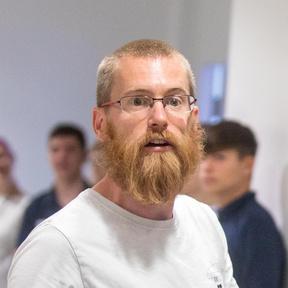
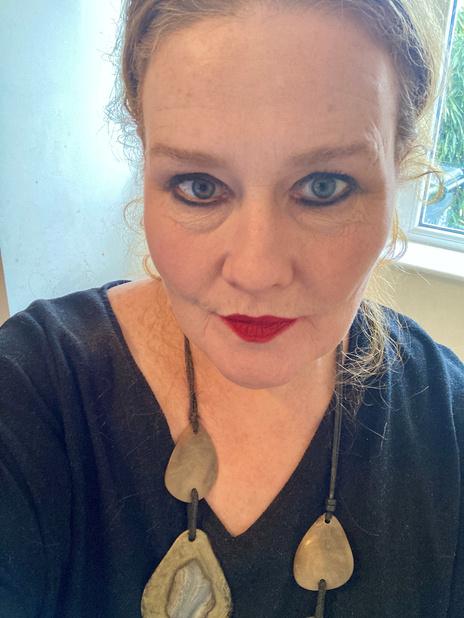
I met with the jurors 1-to-1 at the beginning of the journey to help them prepare to receive information, to be comfortable in sharing their perspective, to formulate questions and to encourage in them a license to shift from entrenched positions.
In the witness sessions and on the deliberation day I supported a dedicated team of small group facilitators. It was thanks to the skill of this team that jurors were able to delve so deeply into the complicated and interwoven themes.
It was an honour to join with the jurors and work with the jury organisers and help to forge a process to such a successful conclusion."
The decision to engage the public in deliberative dialogue on ‘complex health topics’ using citizens’ jury approaches was taken during planning for the 4 year IPPOSI Strategy (2021 2024)
In 2021, IPPOSI delivered a first Citizens’ Jury on Access to Health Information for Secondary Purposes During this jury process, questions around genomics and the management of genomic information were repeatedly raised Additionally in 2021, a series of multi stakeholder reports were emerging from the Irish Health Research Forum on the topic of genomics These trends led to a decision to run a second IPPOSI Citizens’ Jury in 2022 on the Future Use of Genomics in Health Care and Research.
The role of IPPOSI in organising citizens’ juries is one of administration and coordination, and several important steps are taken to keep the executive team distanced from the implementation of the project:
The nomination of an independent oversight panel ensures a range of stakeholders input at key decision points; for example, the development of the questions to the jury, the design of the jury sessions, the selection of witnesses, and the review of witness material for bias
The use of an independent facilitator and team of small group facilitators ensures an impartial, balanced discussion during the online and in person jury sessions.
The use of an independent rapporteur ensures an impartial, balanced account of the discussions are reflected in the jury verdict.
The 2022 jury is delivered in partnership with the RCSI University of Medical and Health Sciences, Public Patient Involvement (PPI) Office who are organising a deliberative dialogue event, based on the Citizens’ Jury verdict, in November 2022
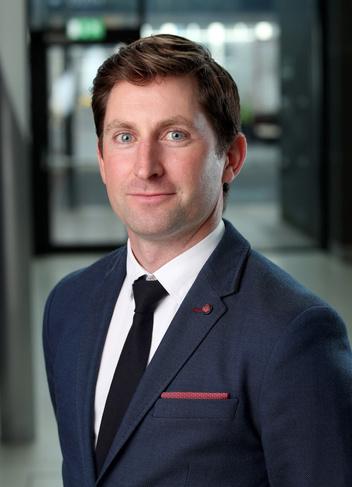
The funding for the implementation of the Citizens’ Jury project was secured from IPPOSI reserves, as well as from unrestricted grants from the Irish Society for Human Genetics, Roche (Ireland), and Pfizer (USA).
We thank all who supported this great effort.
The jurors were each invited to explore the future use of genomics in health care and health research in Ireland - a mammoth task (impossible, some might say).
To make it manageable, the jury was presented with three questions. These questions were intended to get the conversation going and to keep us on track, and they were regularly returned to during the jury process. The verdict, however, does not provide categoric answers to these questions - more evidence and more debate is needed - but the verdict does (we hope!) provide some food for thought, while passing on the responsibility to others.
The questions were developed and approved by the independent oversight panel.
Thanks to important breakthroughs in science and technology, we are learning more and more about our human genome (the complete set of DNA that makes up our body). At an individual level, access to this genomic information can be used to understand diseases and improve our personal health. At a population level, collecting this genomic information can guide improvements in public health.
To what extent should we increase the use of genomics in Irish health care and research in the coming years?
Is the increased use of genomics in Irish health care and research an opportunity or a challenge 1) for individuals 2) for the public health system?
Is genomic information more sensitive than other types of health information (mental health, sexual health)? Should there be special safeguards for this type of information? What do these safeguards look like?
The jurors were selected from a list of individuals who expressed interest in participating in the jury during the public recruitment period in early 2022. With the help of an information technology team from Trinity College Dublin, the anonymised details of these interested individuals were run through a computer programme until a jury was identified which represented the broader population of Ireland in terms of gender, age, location, ethnicity, and educational attainment. The Central Statistics Office census data was used to guide the ideal jury composition. The final jury composition is shared in Annex 5 of this report.

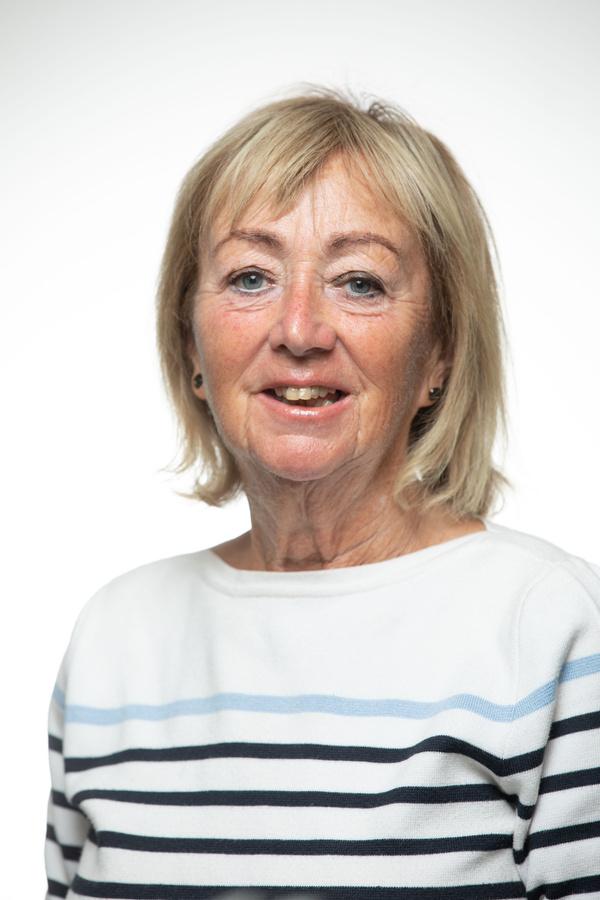
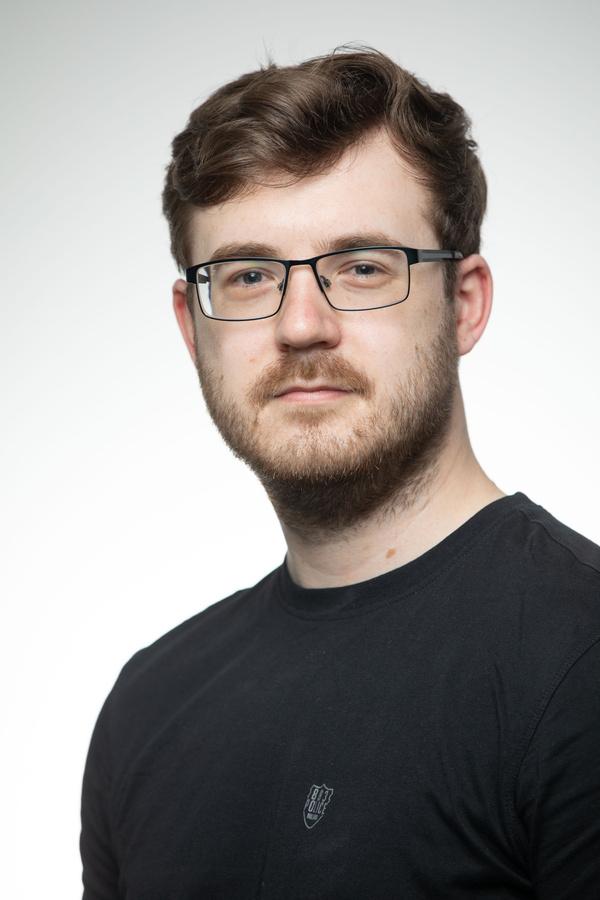
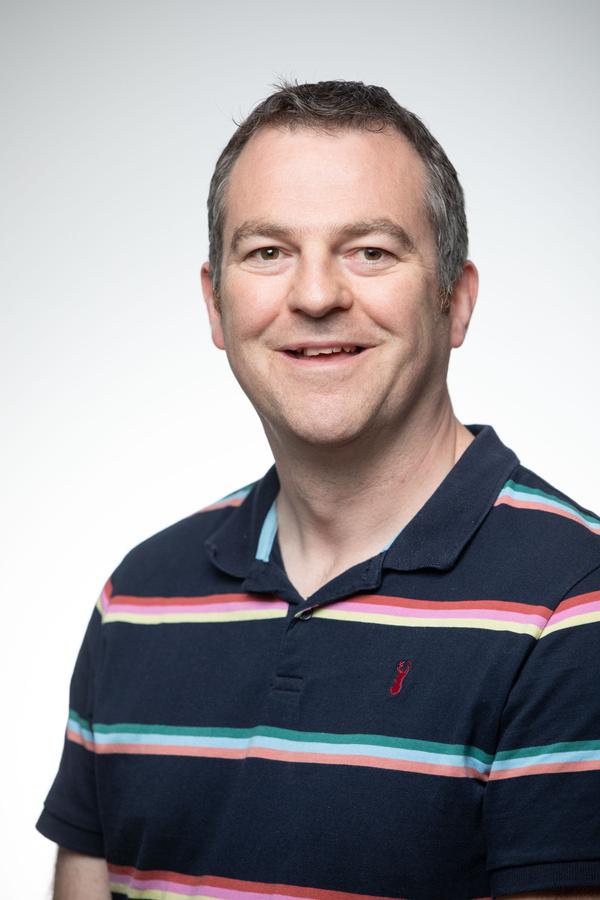
As a result of this careful selection process, we arrived at a jury of 24 individuals representing people from all walks of Irish life. During the deliberations, each of these jurors brought their own perspectives and proposals to the table, which contributed to a rich and diverse group dialogue. Throughout the process, juror attitudes and experience were captured via surveys, information on which is shared on pages 36 and 39.
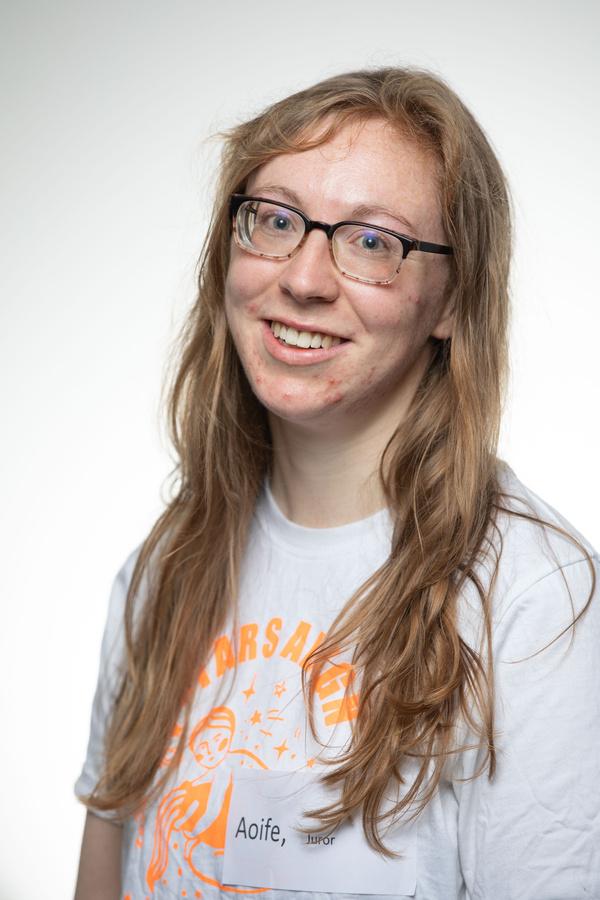

A total of nine expert witnesses addressed the jury. A copy of the detailed jury programme is shared in Annex 1.
The selection of witnesses was completed by the independent oversight panel
The witnesses represented a range of expert views, with each presenting evidence on a different aspect of the topic.
The witnesses were asked to address the jury for 15 minutes, and to respond to requests for clarification or to questions on their testimony during the remainder of the session.
Two witnesses presented at each of the first three sessions, and four witnesses shared the time available during the fourth session. A detailed report of the witness testimony is shared in Annex 3.
On behalf of IPPOSI and the jurors, we thank the witnesses for the time they dedicated to the process and to their openness and willingness to invite challenging questions and to listen to alternate perspectives.
Haematologist, Children's Health Ireland
The national vision for genomics in care
Dr Gianpiero Cavalleri, Geneticist, Royal College of Surgeons, Ireland
The national vision for genomics in research
Courtney Hosp, parent of a child with a rare genetic condition
The patient perspective on genomics
Dr Natalie Banner, Director of Ethics, Genomics England
The public interest in genomics
Mervi Aavikko, Project Manager, FinnGen
The international experience of genomics
The industry perspective on genomics
Ruth Davis, Barrister-at-Law, Law Library
The legal, ethical considerations on genomics
Simon McGarr, Solicitor, Digital Rights Ireland & Olga Cronin, Policy Officer, Irish Council for Civil Liberties
Data protection and rights
Dr Avril Kennan, CEO, Health Research
Charities Ireland
The national vision for genomics
The jury process takes place over four weeks and includes over 16+ hours of online and in-person discussion and deliberation.
Pre-jury onboarding (May 2022)
The jurors were introduced to the jury process in three steps, beginning with a consent process. The jurors then met one-to-one with the lead facilitator to review their home IT setup, to share process expectations, to ask questions, and to be reminded of the fact that they can withdraw at any stage. For the final step, the jurors joined a 'connecting session' to get to know each other, to get comfortable speaking in a group environment, and to agree and own the so-called 'rules of engagement'.
Learning from the first citizens’ jury, one of the key aims of the second jury was to provide jurors with factual information around the topic before engaging in any discussions or deliberations. A two-hour pre-jury information session was organized with experts in the field of genomics, Aoife McLysaght from Trinity College Dublin and Dr SallyAnn Lynch from Children's Hospital Ireland Crumlin & Temple Street. A summary of key learnings endorsed by the jurors can be found in Annex 2.
Online witness sessions (7, 9, 14, 16 June 2022)
Four online witness sessions were organised to allow jurors to hear different perspectives on the use of genomics in health care and health research. Nine witnesses addressed the jury. Witnesses were able to provide resources to the jurors in advance of their presentations (slides, reading material, webpages). After each witness testimony, jurors had an opportunity to ask questions about any confusing or concerning points. Jurors were also invited to share their reactions and additional comments when completing the post-session poll, see a sample of their responses in Annex 3
Throughout the jury process, the jurors were invited to complete pre-, mid-, and postjury surveys to share whether (and if so, how) their attitudes and perspectives changed in relation to genomics.
Jurors are notified at the start of the process, that comments on the process or the content can be confidentially shared with the independent facilitator or rapporteur at any time.
A one-day in-person deliberation session was organised to allow jurors to prioritise the problem areas identified during the witness sessions and to develop recommendations to address each of these areas.
Jurors worked in small groups to draft recommendations for policy-makers and these suggestions were later presented to the full group of jurors for feedback. The small groups then reconvened to consider the feedback from their fellow jurors and to finalise the recommendations, adding any conditions or red lines emerging from the deliberations.
The final recommendations were presented to the group, and using traffic light pieces of card, jurors voted to indicate whether they supported them, considered them to be within their zone of tolerance, objected to them, or preferred to abstain.
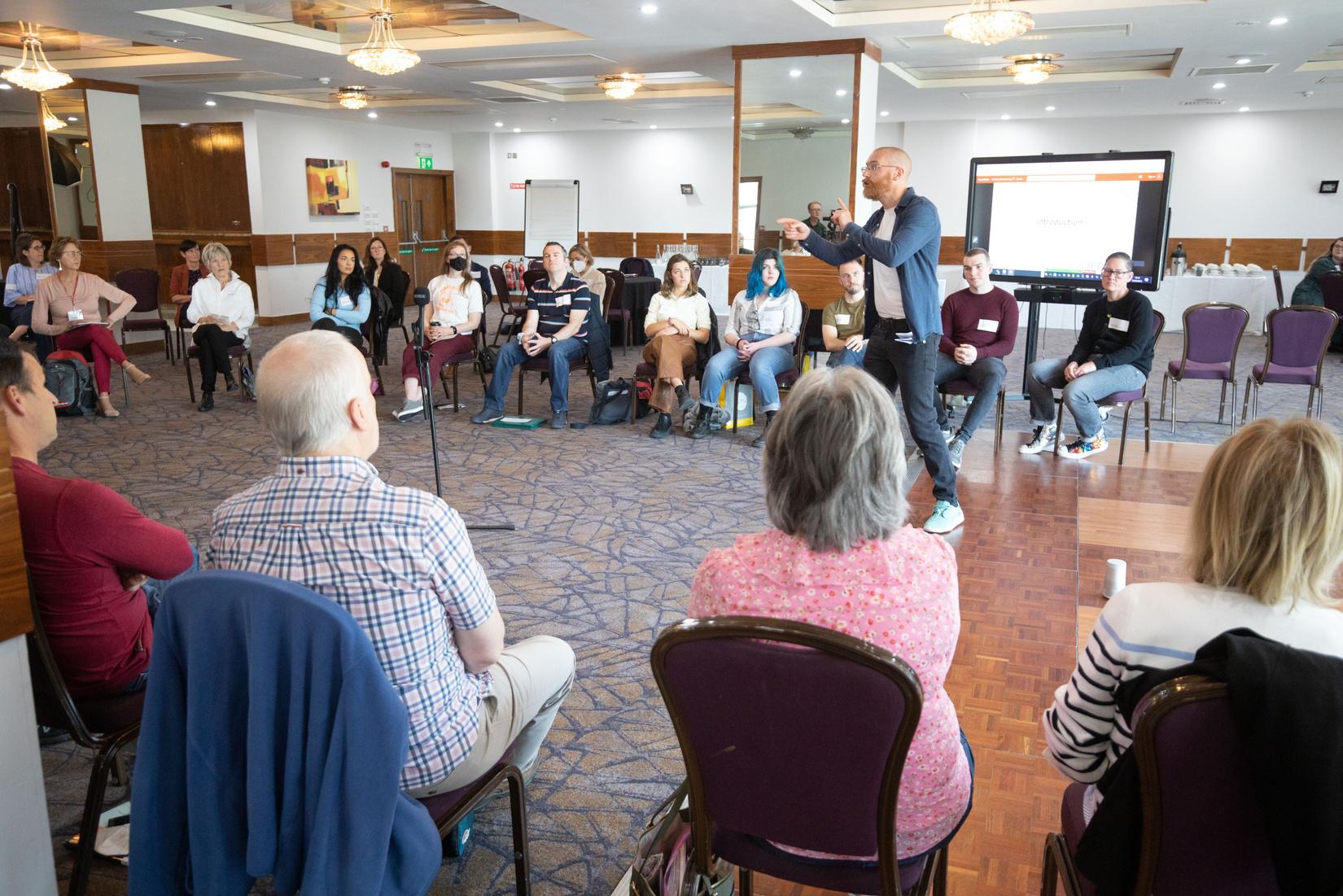
The jurors were invited to volunteer for a number of post-jury roles. The identified roles included 1) drafting the verdict report, 2) presenting the verdict to policy influencers and decision-makers, 3) responding to media interest around the verdict and 4) sharing the verdict as widely as possible with colleagues, family and friends.
The jurors have drafted several recommendations to share their verdict. The recommendations are the result of more than 16 hours of deliberation, during four online evening sessions with witnesses and one in-person deliberation day on 25 June.
The recommendations are arguably one of the most important and interesting parts of the citizens’ jury process. They offer an insight into the jurors' collective views on the future use of genomics in health care and health research in Ireland, and they serve as a call to action for health partners tasked with legislation, regulation, policy and projects.
The recommendations are grouped around five themes – appropriate use, national partnerships, data security, consent, and public engagement. These themes were the focus of recurring questions during the online sessions, and they were identified by the jurors as priority issues for discussion at the start of the deliberation day. Other issues which came up frequently include data ownership, public understanding, workforce capacity, and investment potential but the jury did not have sufficient time to explore these points in greater detail.
The recommendations reflect the perspectives and proposals put forward and agreed either by consensus or by a majority of jurors during the allocated time available. They also include any qualifying remarks, conditions, or red lines that were voiced as part of the discussion. To provide a full record of the debate, we indicate the number of jurors who supported, tolerated, dissented to, or abstained from the recommendations relating to each of the themes. Many jurors will have had additional thoughts and ideas, but the verdict includes only those which were discussed during the formal process and agreed as a group.
The recommendations are directed at health leaders, policy makers, and service managers in Ireland. As experts in their field, several of the recommendations may be seen as ‘obvious’ or known to be ‘in progress’. We have included the recommendations in their entirety, as we believe that it is important to present an accurate reflection of where the public is at in terms of expectation and understanding. The ‘obvious’ recommendations help prove what some may often simply ‘assume’ to be true. The ‘in progress’ recommendations help identify where there are information gaps or where information has been misunderstood.
The recommendations are a great starting point for a national conversation about the future of our health sector – how we use new innovations, how we manage large amounts of personal data, and how we produce better health outcomes for the people of Ireland.
Following a discussion around the term 'appropriate use', the jurors agreed that genomics should be used in health care in Ireland for the diagnosis, treatment and research of medical conditions, but that it should not be used for the purposes of aesthetics or enhancement. Jurors acknowledged that it might be difficult in some cases to distinguish between medical treatment and enhancement. "Appropriate use, for me, would be diagnosis and treatment for individual care but also for research for the public good".
There was a lengthy exploration of concerns about the potential use of genomic technologies across the different stages of the reproductive health lifecycle. Jurors questioned whether pre-conception genomic testing could become commonplace - ultimately leading to prospective parents screening for a wide range of health conditions which are assumed to be ‘undesirable’ and the editing out of these conditions in future children, “People might want to say 'yes, this is a particular difficulty, let's not have that' and it could be done. But are we then going to get into, 'I don't want my children to have red hair or I don't want my children to have asthma?'”
It was agreed that a system of ‘opt-in’ versus ‘opt-out’ should be used in relation to individuals consenting to share their genomic data for medical care and research. One juror stated that “genomic data should not be collected for data sake”, instead it must be collected in a 'targeted way' for a 'defined use' related to 'specific' health care or medical research only.
There were some alternate views expressed which suggested that the collection of genomic data only for the purposes of diagnosing, treating and researching specific diseases may be restrictive and “not the best scientific approach” as it ruled out the collection of genomic data for more general use. “I think we should collect data in general, rather than collect data just for specific conditions. I think we should have a full collection of data.”
How should we use genomics appropriately in health care and research? What do we want to be able to do, and what are we less sure about? Where do the red lines need to be drawn?
The principle of protecting the individual (or the patient) and their rights was raised many times. Jurors were emphatic that any decisions around use – either in medical care and treatment, or in research – should benefit the individual in particular, or public health in general.
It was agreed that many of the ethical issues around ‘appropriate use’ will require additional safeguarding regulations to provide a legislative framework, especially the use of genomic data for health research. The development of these regulations needed to be informed by a range of different perspectives.
Jurors called for the government to lead on this engagement with stakeholders, and a long and unfinished debate ensued about whether engagement should be confined to secular stakeholders – presumably in response to recent events in the media, specifically the public debate about the governance of the new national maternity hospital.
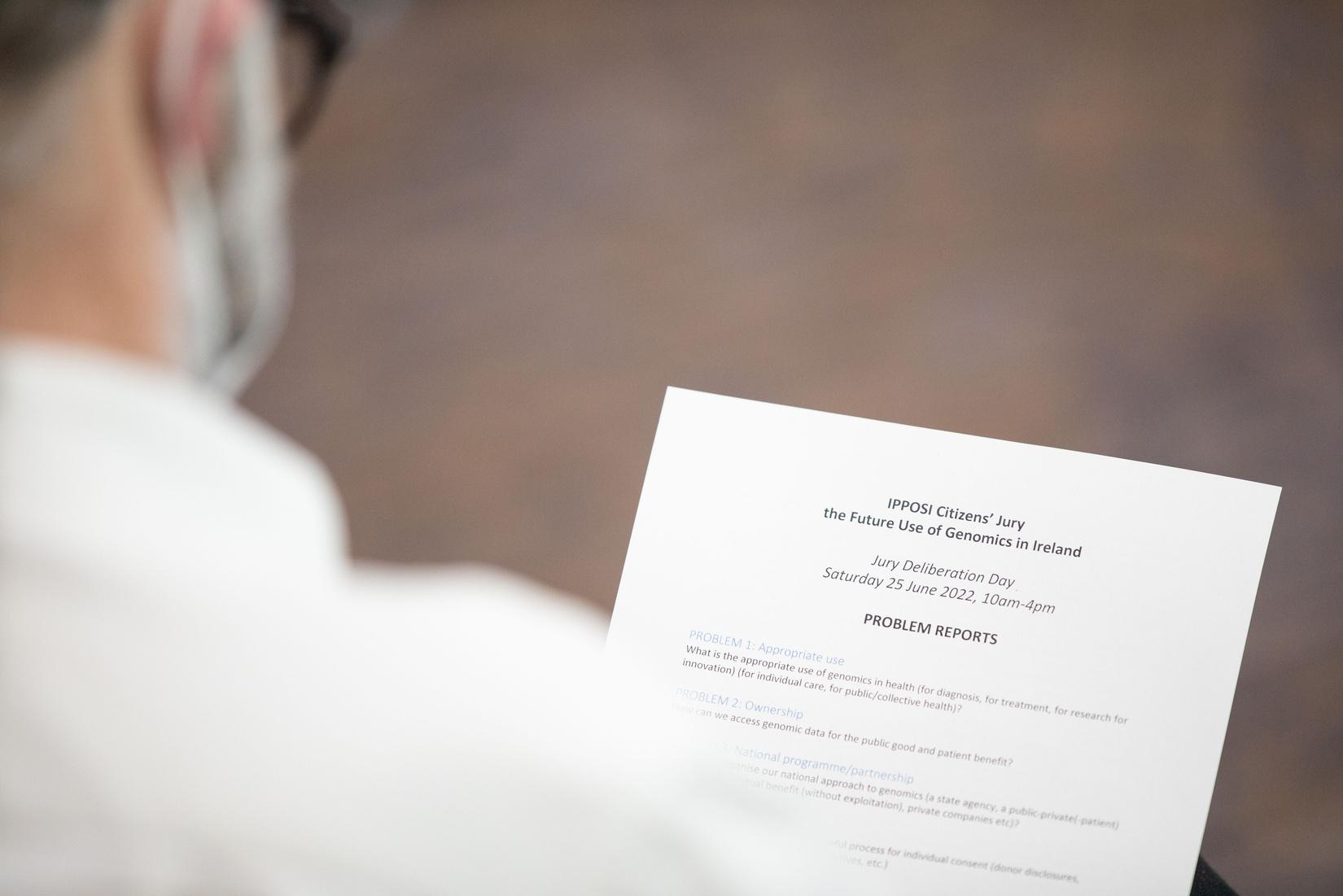
We recommend that genomics be used in health care in a targeted way for the purpose of diagnosing and treating disease. It should not be used for aesthetic purposes.
We recommend that strong protections, and appropriate, adequate supports are put in place to assist individuals, especially individuals from vulnerable groups, in making informed decisions around genomic testing options during their journey towards a diagnosis.
We recommend that individuals are given the option either during or following the genomic testing consent process to share their genomic data for the purpose of supporting health research. The research should contribute towards better health outcomes for individuals or for society, and this contribution should be clearly detailed and explained during the consent process.
We recommend that members of the public who consent to share their genomic data to health research should not receive any financial reward or preferential treatment from the health system or from third parties, for example, medical cards or discounted premiums.
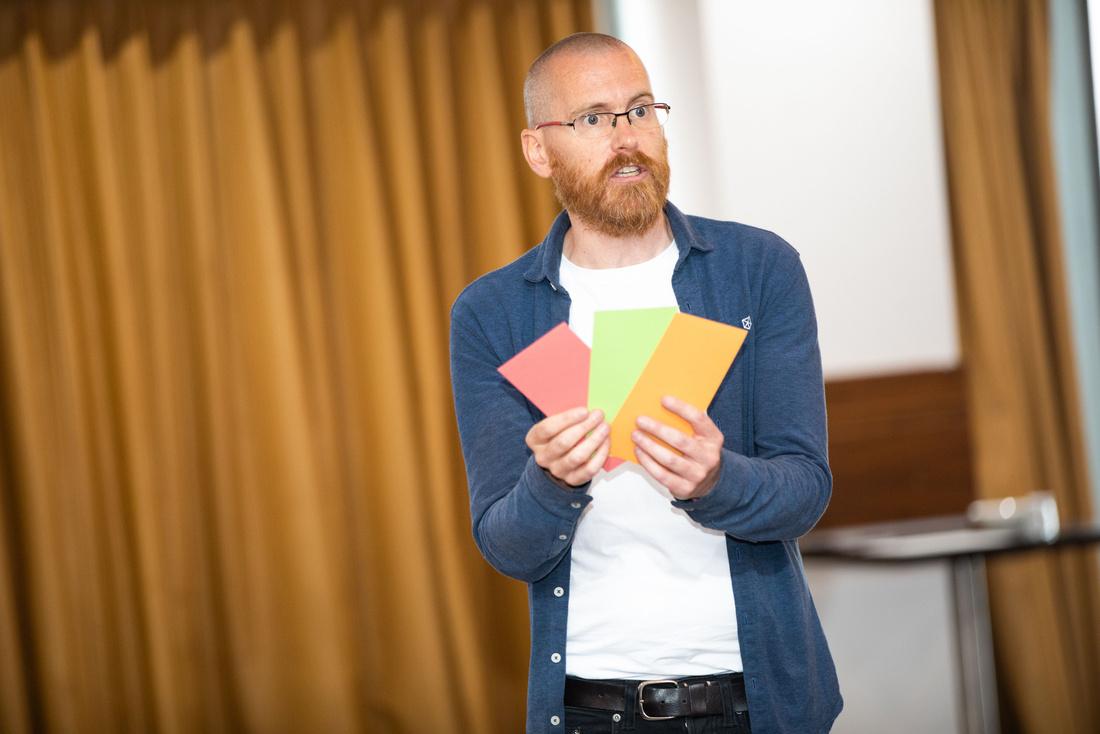
The jurors recommended that a national programme for genomics in Ireland should be established based on a public-private partnership involving the Government and both the public and private research and innovation industry. This partnership should operate within strict guidelines. Making an obvious but important statement, one juror underlined the importance of establishing a partnership in which the public have a majority stake.
It was recognised that the involvement of the private sector would create certain risks and benefits, however the jurors agreed that the potential benefits (such as, investment and the development of new therapies for patients) outweighed the risks, “realistically funding has to come from somewhere .....I see the benefits but [I also] see the risks.” One juror expressed clear concern as to the involvement of the private sector, stating that they felt that the recommendations from the group on this issue put “an excessive amount of pressure to emphasise the interests of private bodies very strongly leaning towards private to the exclusion of public.”
Juror support for a public-private partnership model was contingent upon the successful introduction of stringent guidelines and safeguards around the access and use of genomic data by the private sector. Like the debate around appropriate use, jurors felt that decisions to grant access to genomic data by the private sector must be firmly grounded in the protection and promotion of individual and public interests. “I am more concerned with what pharma would do with the data as opposed to being concerned with the data itself. We need to set limits before we start.”
What is the national approach to genomics in Ireland? How should it be organised (a state agency, a public private (patient) partnership, with private companies) etc.?
Other comments described genomic data as a resource, it should not be sold, and it should only be accessed “under one roof” – a place where information could not be downloaded and taken away i.e. where the database would be accessed like a reading library.
"The private sector has a part to play in a national programme for genomics...when you bring in the private sector ...it drives efficiency, drives and accelerates research, therapy development and makes it ultimately financially viable to the point that it reaches the end patient, the government isn’t going to develop therapies the private sector will.”
“Genomics has fantastic potential benefits but there are a lot of risks but the benefits are so high that its worth mitigating against the risks and investing as much as possible in minimising those risks we shouldn’t lose the benefits because of the potential risks.”
The jurors agreed that a new state-appointed agency is needed to oversee and implement Ireland’s national genomic programme. The HSE was viewed as already overburdened, and genomics and health information were identified as topics requiring a distinct and specialised approach. “A new state agency would bring a fresh outlook and we cannot add more load to the existing systems.”
Public trust and confidence were identified as central to the potential success of any programme. It was mentioned that there needed to be strong public and patient representation on any new agency.
Transparency and accountability were also prioritised, and jurors suggested that the new state agency should be required to publish a detailed annual report and to carry out all of its activities with complete visibility for the public. “There needs to be balanced reporting, not just where genomics is useful but also admit where it has failed or is not useful.”
The jurors acknowledged the pace of change, especially around the amount of data being collected about individuals, and the availability of this information to others - both now and into the future. “There is so much unknown...we actually only know a small bit about our genome and the future of genomics. It’s such a scary prospect if we just lump that in with everything else.”
Although jurors acknowledged the protections in place thanks to the European General Data Protection Regulation (GDPR), the Irish Data Protection Act and Health Research Regulations, it was suggested that specific legislation may be required to underpin the national genomic programme. "I think everything needs to be black and white.... no loopholes.”
Jurors suggested that this legislation should provide essential and specific safeguards, and revisit important issues such as consent around the storage, sharing, and use of data, and of genomic data in particular. “We need separate legislation for genomics because it is different to [other] medical data.”
It was agreed that informed consent is essential and that individuals should be able to choose based on an ‘opt in’ model. Jurors highlighted difficult situations, including respect for an individual’s data wishes posthumously.
It was advised that legislation (and supporting policy frameworks) be revisited on an ongoing basis given the speed of developments in the area of scientific and genomic care and research.
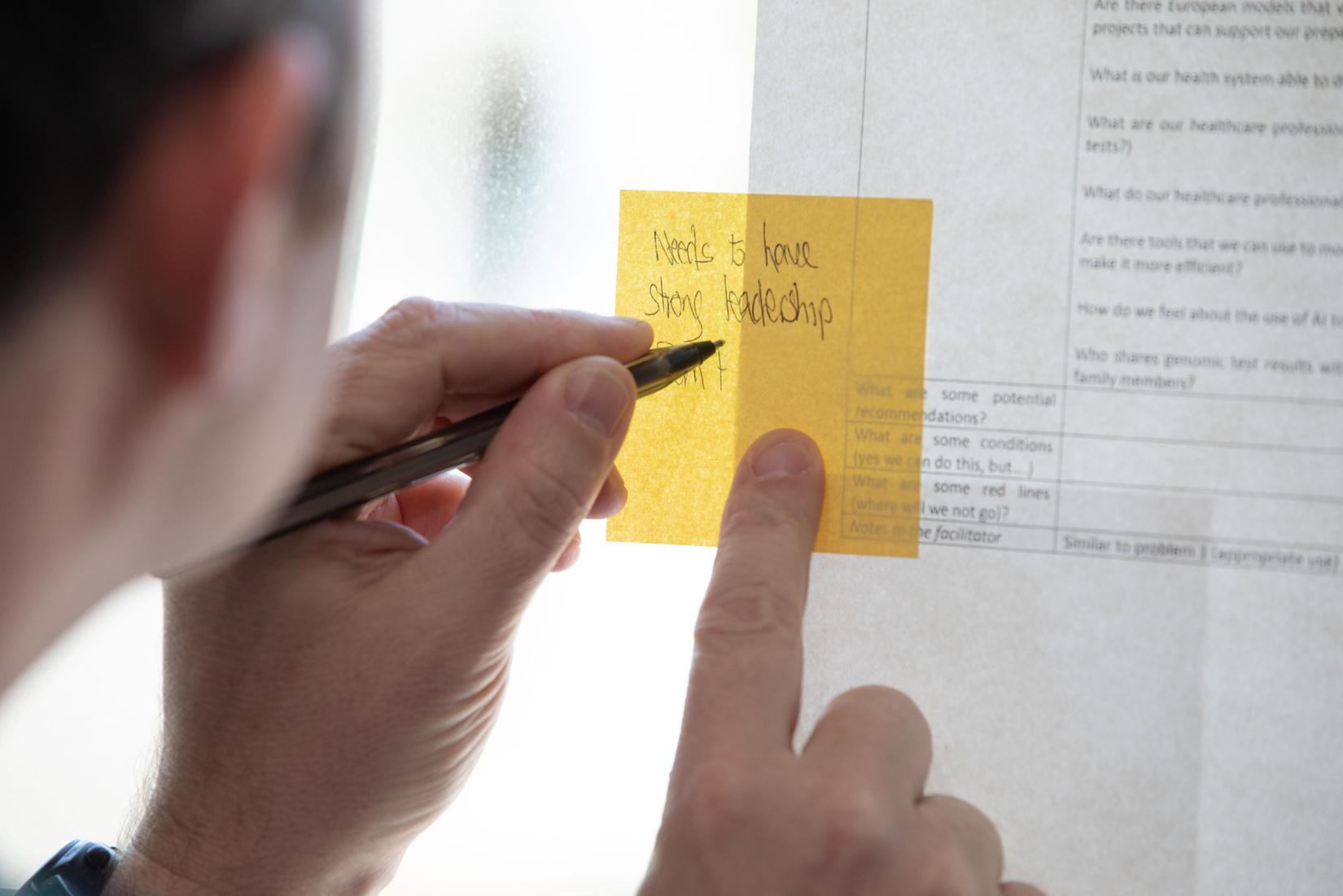
The jurors debated the establishment of a national genomic database – like the UK’s 100,000 Genome project – and there was general agreement that while this had a place in Ireland we needed to establish the necessary infrastructure (and legislation) first. There was a sense among the jurors that when it comes to genomics, we need to learn to walk before we can run. “There is a place for a genome project (database) further down Ireland’s genomics journey.”
Therefore, before Ireland could establish its own genomic database, it was agreed that there was a need to secure funding, to draft legislation and to procure the required technical and IT resources and expertise. “There is definitely a place for that, but we would like to see the government and state body put in the infrastructure around testing people that have symptoms giving them the option to opt in to giving data to this database gradually. When we have all the infrastructure built up with the right people and the right organisations and the correct level of funding we could go then look at [a national database.]”
One juror made the point that any national database should be sustainable, and that consideration should be given to the significant negative impact which data centres have on the environment. There was general agreement that environmentally-friendly solutions should be prioritised.
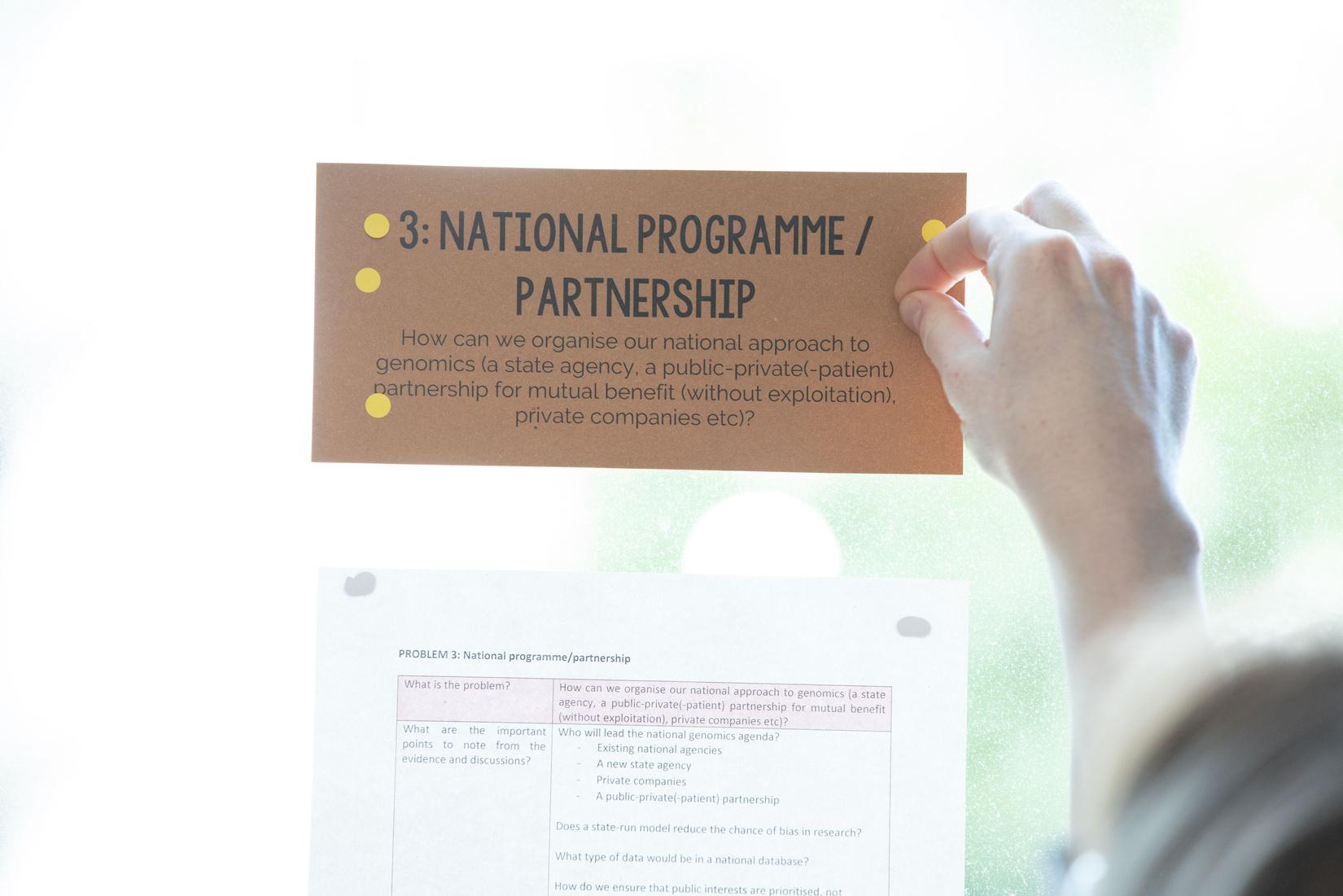
We recommend that a national programme for genomics in Ireland should be pursued which involves the creation of a trusted partnership between the public sector and the private sector, with strict safeguards in place to protect the public interest.
We recommend that an independent, state-appointed agency should be established to direct the implementation of the national genomics programme for Ireland.
We recommend that the government draft specific legislation to underpin the programme and provide for issues around consent, storage, access, and sharing of genomic data and to provide for its lawful use in health care and health research.
We recommend that the government create and invest the necessary health information infrastructure, including the creation of a national genomic database, similar to the 100,000 genome project in the UK.
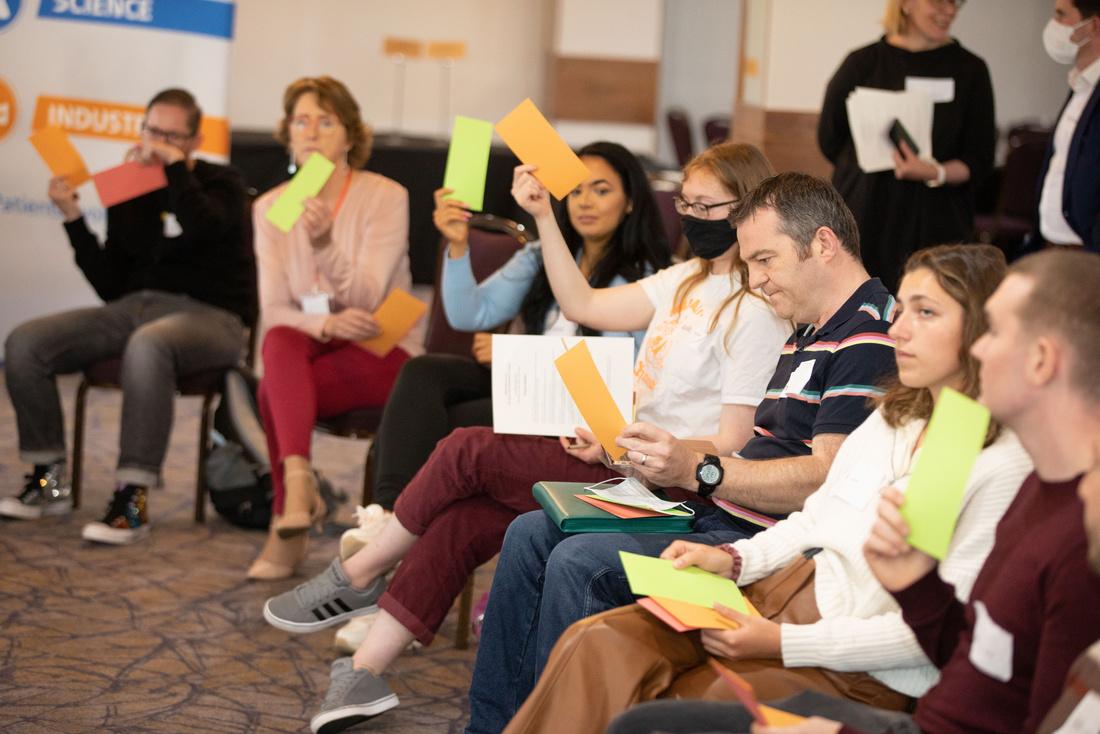
The jurors proposed that a single, national, centralised database should be created to keep genomic data safe and secure, one juror described the vision as a “digital data fortress.”
Some jurors suggested that this database should be housed in a physical facility and researchers who want to access the data would travel in person to this location. Data would not be allowed to be taken out of the facility and it would only be accessible in-person (rather than online). “Health partners should be able to visit the ‘library’ (database) but not take the ‘books’ (data)”.
There was a hope that by keeping the database offline, cyber-attacks like the May 2021 attack on the HSE ICT systems could be prevented. One juror suggested that the database could be made accessible in secure regional or satellite centres to allow greater access for researchers who cannot travel to the main facility.
Other jurors were unsure about the practicalities of having one physical database location with no online access, claiming that it might negatively impact future progress in research and innovation. “My question is how realistic that is, is it practical and will it stymy research?”
As an alternative suggestion, it was proposed that researchers could access the data online but not download it – a system used by the FINNGEN model in Finland where researchers can only access the national biobank “under one (virtual) roof”.
How do we keep our genomic data safe? How do we minimise the risk of data breaches or data misuse? What legislation, regulations or policies are needed?
It was recommended that any breaches of the guidelines or rules around accessing the database should be met with “significant consequences”, such as the immediate removal or suspension of permission to access the database. It was argued that punishments like fines would not work as some companies could afford to pay large financial penalties.
“It can’t be just a fine, it has got to be either a ban or a timed absence for either five or ten years.”
“Pharma companies have very deep pockets they can afford to pay a fine.... it would have to be restrictions on access in the future.”
One juror suggested that penalties should be proportionate and specific to those who contravene safeguards – companies could be asked to pay a percentage based on their profits, for example.
While agreeing that penalties are needed in instances of data breaches or data misuse, one juror questioned the emphasis put on legislation and consequences in light of the protections that exist around data at the EU level. “I think there’s too much emphasis on the legislation. I'd be in favour just having EU law. And I think there’s too much emphasis on the consequences. If you break a law, the courts deal with it ...I don’t think we should be deciding what the consequences should be,”
The governance of the database was the subject of much debate as jurors tried to identify an ethical gatekeeper to keep genomic data secure. Some jurors felt like health care professionals should hold the keys to the database, others felt like this was an impossible ask on an already over-burdened workforce. What is clear practicalities aside – jurors appear to trust health care professionals to keep their genomic data safe and to act in their best interests – and any future gatekeeper must strive to the levels of respect and confidence embers of

The jurors agreed on the need for an independent Ombudsperson to be publicly recruited to examine complaints around the security of and the access to health data, including genomic data, across the state.
It was underlined that the Ombudsperson would act distinct from organisations like the HSE and HIQA, and that it would review cases received from members of the public who feel like their data has been mishandled or misused. The Ombudsperson should also hold any new state-appointed agency for a national genomics programme to account and fully investigate any shortcomings identified.
The Ombudsperson must include patient and public representatives in its governance structures, and its activities must be grounded in protecting the interests of the individual and of the public in general.
The group of jurors discussing the appropriate use of genomics also emphasised the need for an Ombudsperson. They highlighted the importance of an a-political body, like an Ombudsperson, to oversee a complex health topic like genomics with one juror commenting “It cannot become a political football. This needs to transcend politics. If it doesn't transcend politics there's no point in starting, it's finished,”
The Jurors acknowledged the importance of encouraging collaboration around genomics between clinicians and researchers in Ireland, in Europe, and globally.
Trusted data-sharing was recognised as a key part of any collaboration. Jurors called for consistent data security standards to be agreed when sharing data.
It was recognised that a data secure future requires significant investment, and it was acknowledged by jurors that there is often a reluctance by both governments and taxpayers to make adequate funding available upfront before the long-term benefits can be demonstrated – a situation which results in a catch-22 emerging.
“The whole thing is going to come down to money in the end – will the public stomach the amount of money going into these things that need to go into it – in the long run it saves money, but government are only for five years!”
We recommend that the government develop a national centralised genomic database with strict access protocols. The database security should meet the highest international standards. The infrastructure and the investment needed to build the foundations for operationalising such a database should be a priority.
We recommend that the relevant state agency handle breaches or misuse of genomic data from national databases. There must be serious and significant consequences for any breach or misuse by public or private partners, as detailed in legislation.
We recommend that an independent Ombudsperson be established to monitor the use of genomics in health care and in health research, including the national programme implemented by the new independent, stateappointed agency. The Ombudsperson would act in the public interest and, among other responsibilities, review complaints and provide redress in the area of data security.
We recommend that the government invest and design a secure infrastructure to host genomic data so that data-sharing between health care professionals and health researchers is encouraged and facilitated, technically and to agreed standards.
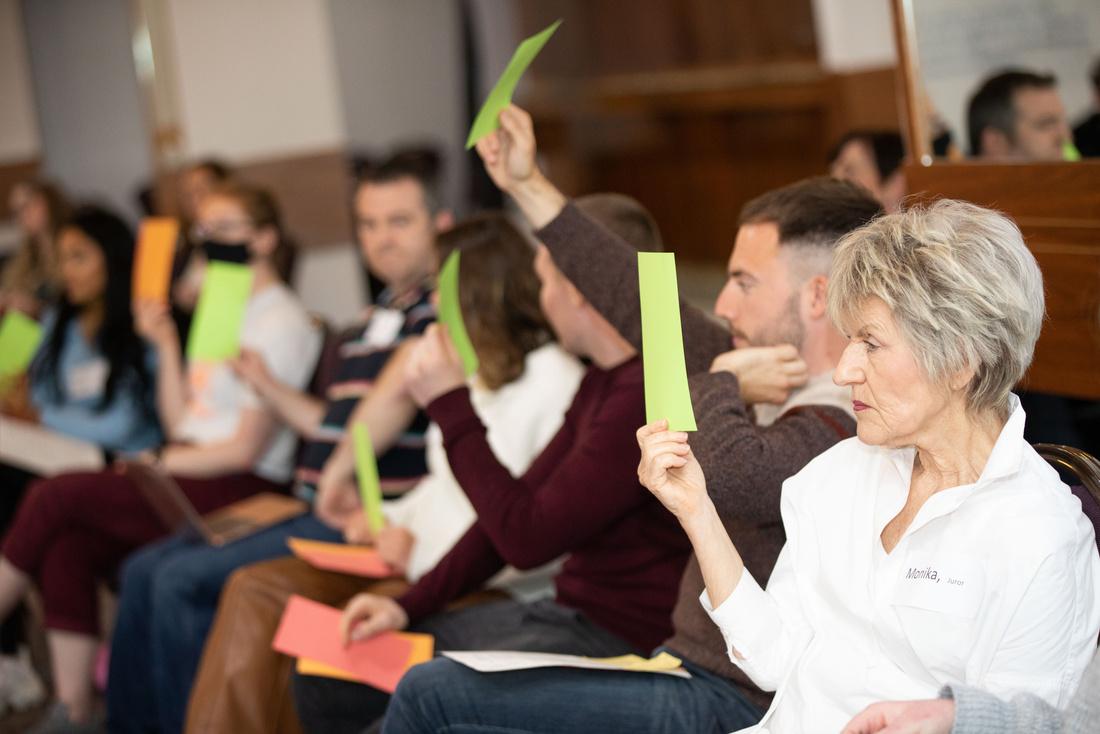
The jurors agreed that people need to feel in control of their genomic data, and that trust in the consent process is vital to the future successful use of genomics in health care and health research.
Jurors equated trust with choice, and they suggested that individuals need to be able to manage the collection, sharing and use of their genomic data. The jurors believed an opt-in rather than opt-out process of consent was required. It was also agreed that a process of re-consenting for the future use of data needed to be in place.
It was agreed that an opt-in process of consent where a clinician/researcher/institution must obtain explicit consent from an individual before collecting or processing their personal data should be adopted in Ireland for genomics.
Informed consent is the cornerstone of research ethics. It ensures individuals have an informed choice about whether or not they wish to participate in a research study or in this case share their genomic data.
The jurors agreed that a process of informed consent was required and that individuals needed appropriate time to consent to sharing their genomic data.
How do we create an accessible and dynamic consent process? Should we adopt an opt-in or an opt-out model? When should we discuss consent and who should have this discussion?
“Opt in is better as it gives a choice to the individual,”
“You can miss opting out,”
There was discussion around how long someone would need to ensure they have understood the consent process and what exactly they were consenting to.
Time limits of 24, 72 hours to a week or longer were suggested however the groups agreed that a time limit was not helpful as each individual would have different needs/abilities to understand the process and some research projects may be more urgent than others.
It was agreed that no time limits should be set but instead the group would recommend “individual appropriate time.”
Several jurors queried, “is research suffering because we are putting a [lengthy, individually-appropriate] time limit on it?"
There was a lot of discussion on the issue of the current protections in place to protect personal data such as GDPR legislation. Jurors understood that while personal data is protected under GDPR, anonymised data is not, as it does not require the same protections.
Data can be considered ‘anonymised’ when individuals are no longer identifiable. It was agreed that participants in genomic research studies needed to be made aware that consent was linked to legislative processes and the protection afforded to their data depended on the way in which the data is processed.
“Consent and data processing are two sides of the same coin, if you hand over consent the extent to which those are processed affect how your consent is dealt with afterwards,”.
One juror seemed very concerned, claiming “When its anonymised it is open season for GDPR,”.
It was also agreed that the onus should be on the researcher or professional who is seeking an individual’s consent to ensure that adequate time and resources are in place to support participants including those with limited capacity and minors as part of the consent process.
The jurors agreed that currently consent forms can be complicated and complex and that there is a need for these to be simplified. That a process of informed consent needed to communicate simply and clearly in “lay language.”
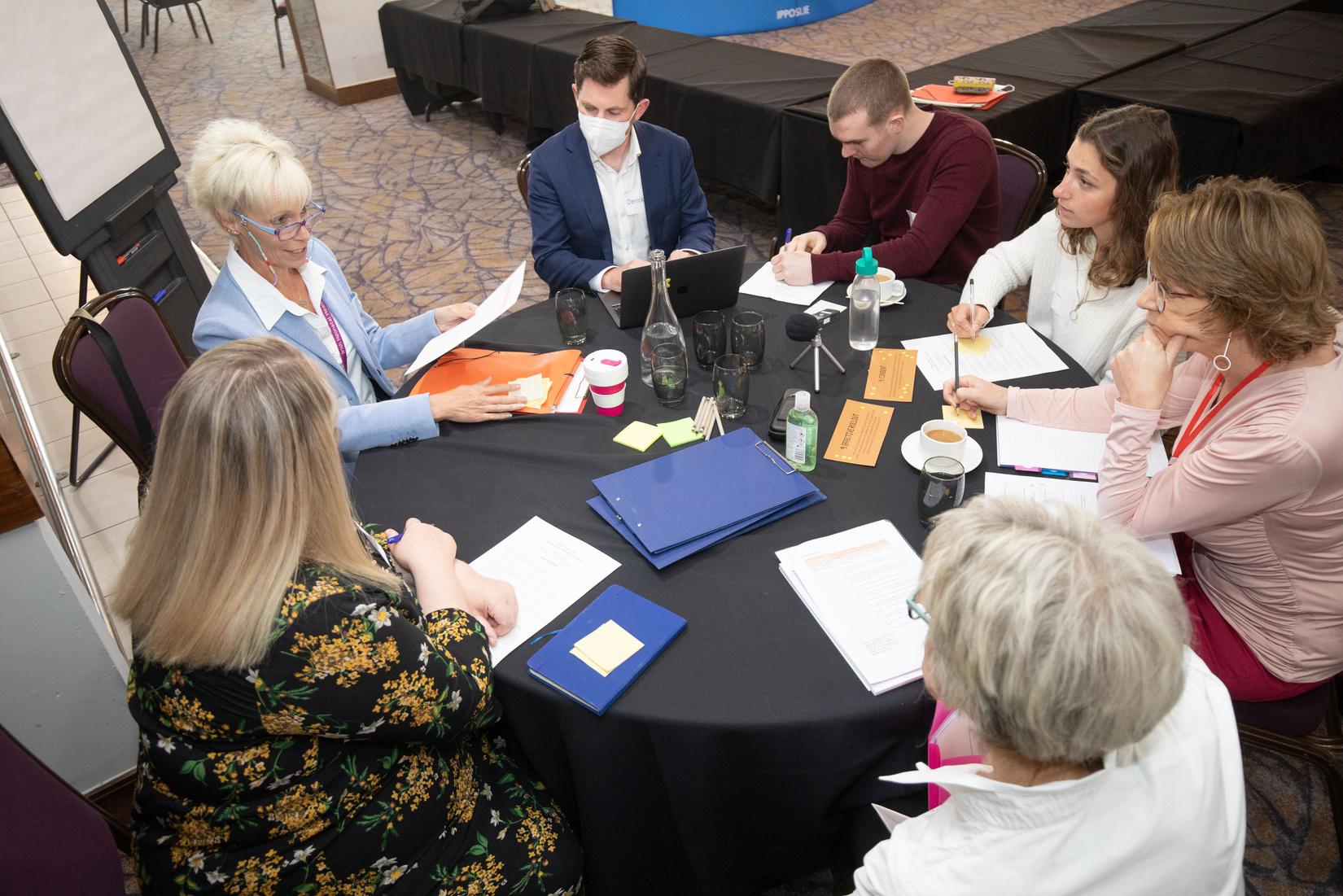
As a further safeguard to ensure that an individual fully understands the consent process and what they are consenting to it was recommended that individuals take a separate comprehension test before signing the consent form. It was noted that some research ethics committees already have these standalone tests in place that check the participant’s understanding of the consent process.
For example a participant would read the consent form and then take an online test, which asks specific questions about the consent process to ensure they have understood. “That ease of understanding for me would be key.”
There was a majority agreement from the wider jury on the recommendations from the subgroup on consent. One juror stated that the recommendations around consent reflected many of the issues raised in other groups. For instance, in discussing data security, jurors recommended that a specific 'young adult model of consent' be introduced. Under this model, young people whose parents may have consented on their behalf as children would have the option to reconsent or to withdraw their consent when they reach adulthood. They also called for consent to be dynamic and for requests to withdraw data to be processed in a proper and timely manner.
We recommend that Ireland continue with an ‘opt-in’ rather than an ‘opt-out’ model of consent for genomics in health care and health research The graduated opt-in process used by the 100,000 Genome project in the UK should be tailored to Ireland. A process for re-consenting to the future use of genomic data to support health research needs to be put in place.
We recommend that, as best practice dictates, informed consent should never be a once off rushed decision. Care needs to be given to allow people individually-appropriate time to consider the information.
We recommend that the onus should be on the clinician/researcher/professional to ensure that adequate time and resources are in place to support participants including those with limited capacity and minors as part of the consent process. Participants need to be aware that consent is linked to legislative protections e.g. GDPR and the Health Research Regulations in Ireland.
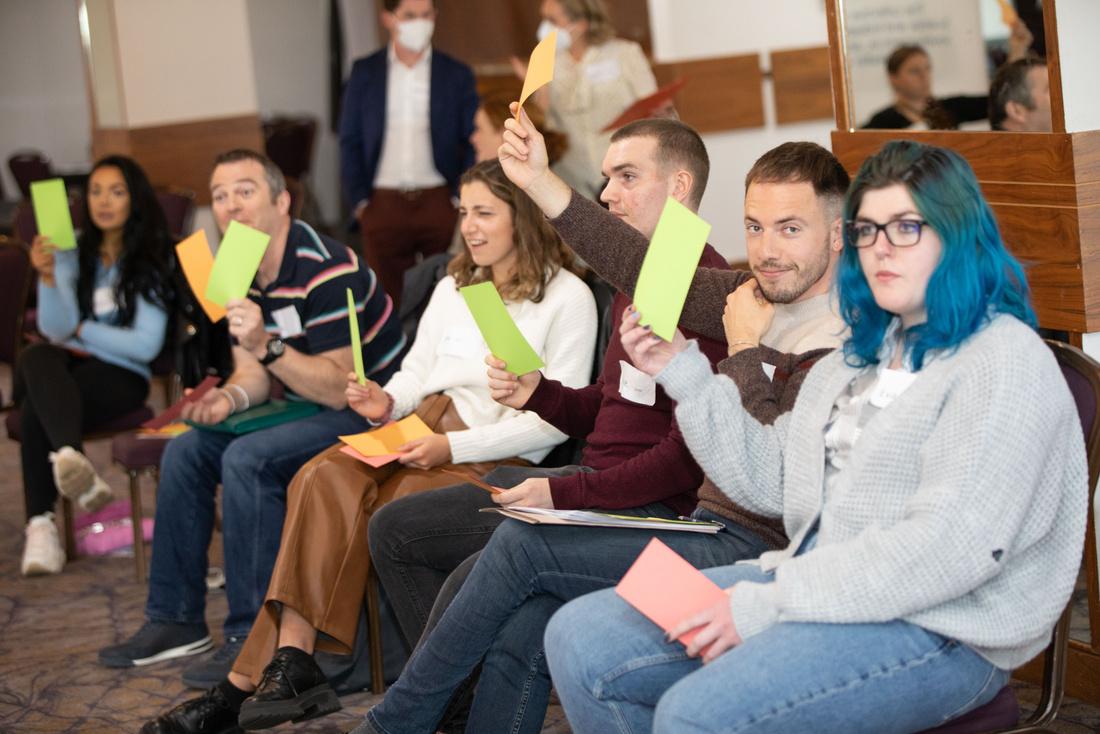
We recommend that clear understandable information using lay language should be a mandatory part of any consent process. The research ethics committee should place greater emphasis on reviewing how the researcher plans to assess and demonstrate a participant's understanding of consent.
We recommend that public information is provided to explain the process of anonymizing or pseudo-anonymising data. People need to feel like their data is protected and safeguarded in its different formats, and they want to know what control they can have over their data when it is identifiable and anonymised or pseudo-anonymised.
The jurors unanimously called for greater public engagement around the topic of genomics. They described the public voice as ‘integral’ to any conversations around genomics, and they asked that the public voice be ‘central’ to the development of legislation and policy and guidance around genomics. Elaborating on the types of engagement needed, jurors called for early engagement around both macro and micro issues at local, regional and national levels.
To focus the conversation, jurors recommended that a ‘call to action’ be identified around which citizens could be mobilised to debate and decide. The jurors felt that as genomics is such a broad and complex topic, focusing attention on one element – for example, the development of an Irish biobank like the FinnGen project in Finland – could concentrate minds and could serve as an entry point into a broader discussion of the issues. It is important to note that while jurors referred to the FinnGen project and to the Finnish approach, they did not see it as a ‘panacea’, stating that the Irish model would have to be tailored to meet the existing challenges within the health system and the current levels of public trust in the government to address these challenges effectively.
How do we need to engage and involve the public around genomics to gain trust, secure buy-in, and meet expectations? How do we increase the public’s understanding of genomics?
"Genomics is for the public by the public, and with the public at its heart".
“Everything should be designed for giving people agency and empowering people to make their own decisions.”.
While the jurors supported public engagement around genomics, they warned that public information and education must come first. They called on the government to show leadership in making the public aware of all aspects of genomics use in health care and health research – the potential for good, the potential for bad, and everything in between. It was again reiterated that there are a lot of unknowns when it comes to genomics, and that this needs to be part of the messages communicated to the public. Jurors called for public information material to be developed in a transparent and inclusive way, with input from representatives of the public.
The jurors emphasised that any public engagement should seek to invite a discussion around values which are important to us as individuals and as a society. We should not shy away from exploring people’s emotions around some of the more sensitive and controversial elements of genomics, and we should embrace a variety of perspectives to arrive at a shared vision. Jurors indicated that an overreliance on facts and figures only could be overwhelming and cause the public to not engage, or to quickly disengage, with the topic.
The jurors identified that there may be groups which show greater interest in the topic, for example patients or the parents of children with a rare disease, and that specific public information may be needed to respond to their questions, concerns, and expectations.
“We want everybody at the table with all the right people at the head [of the table] leading the charge, we want to present the facts and figures honestly and openly, and we want to take into account that people make decisions based on emotions,”.
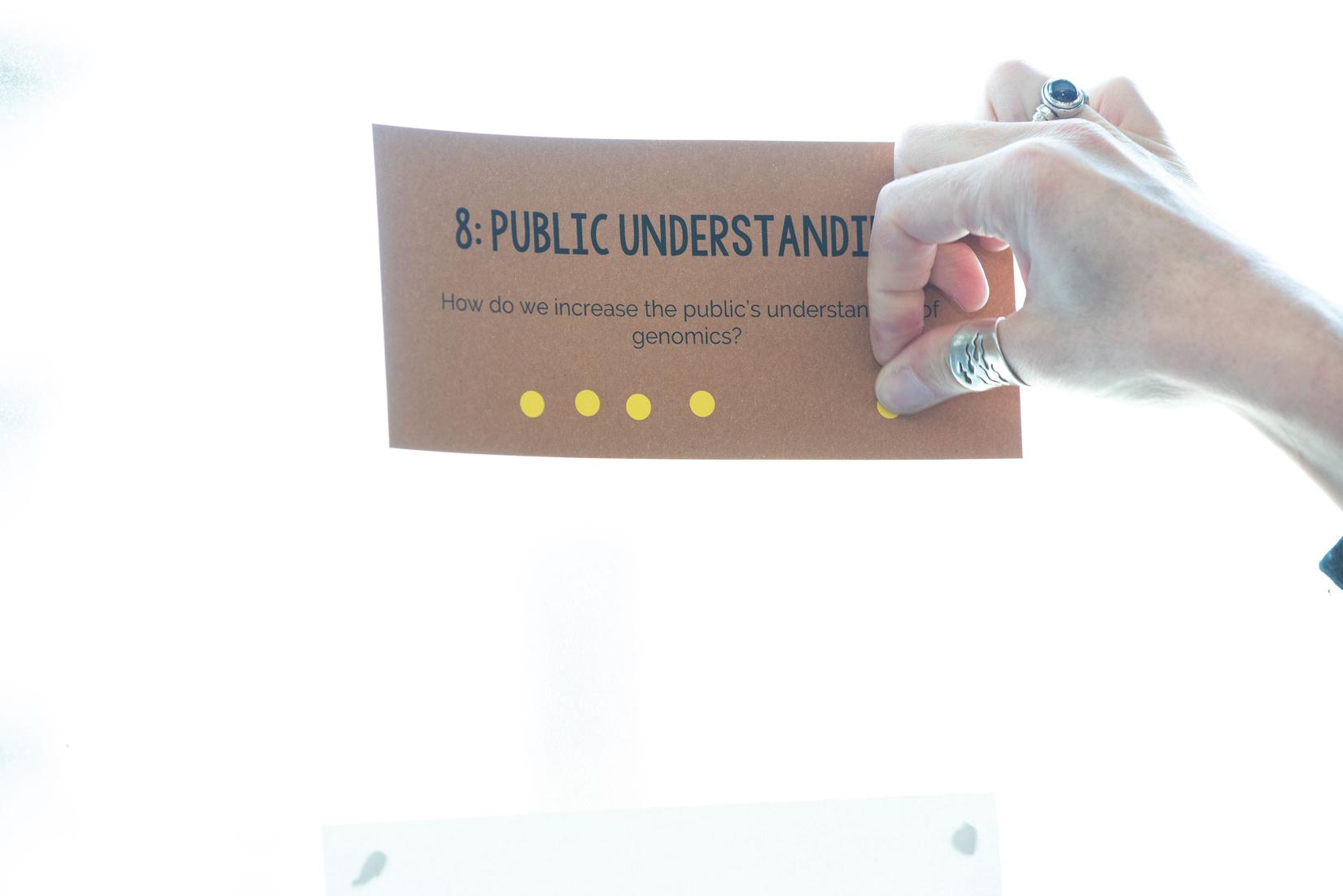
The jurors did not feel that Ireland had a long tradition of public engagement to draw upon, but they did feel that there were many lessons to be learnt from looking at the past.
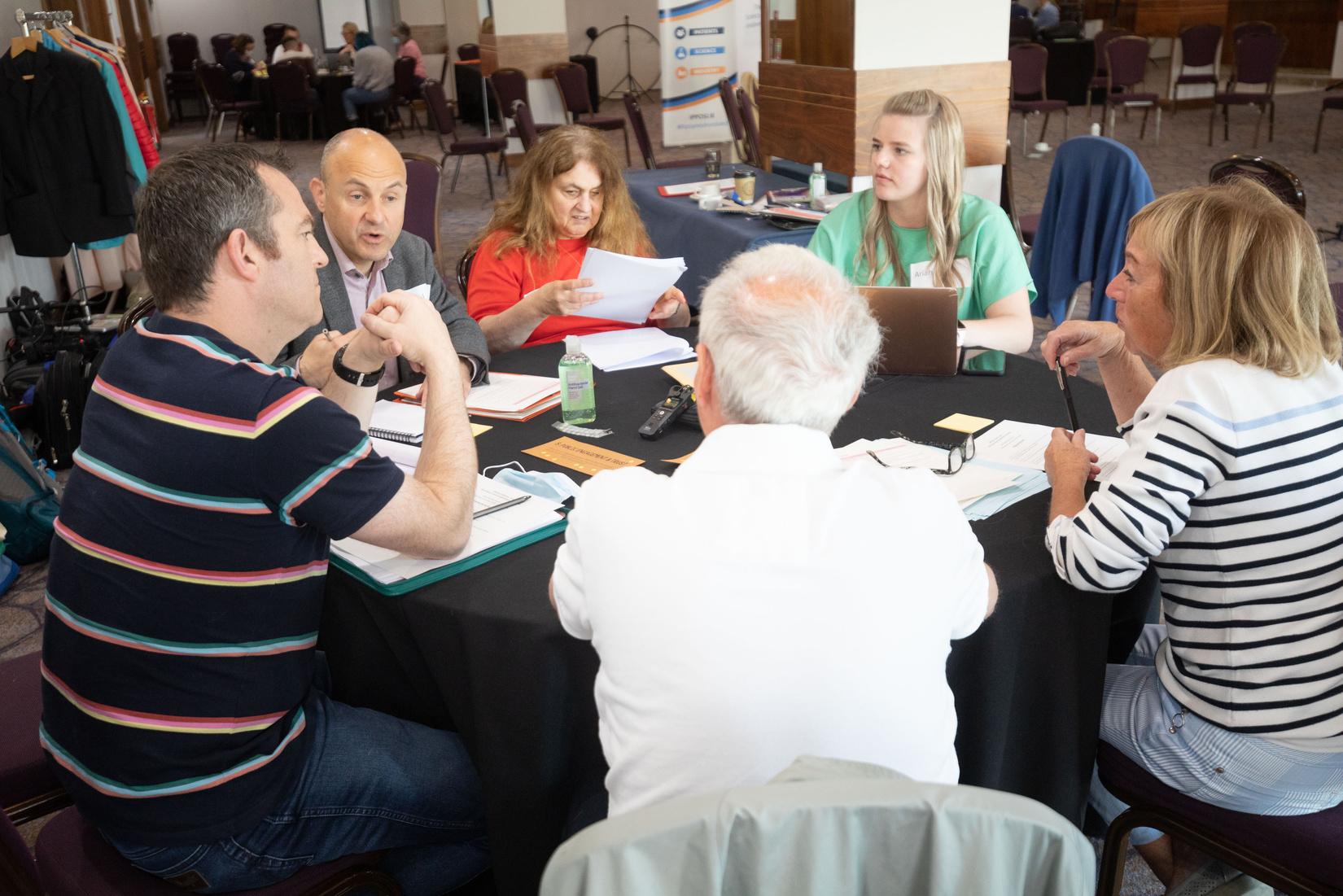
The jurors highlighted the government’s strong communication around the recent COVID-19 pandemic, but only some of the jurors felt that this experience could inform future public engagement around the topic of genomics. It was generally agreed that elements of how the government approached public health messaging during the pandemic could be adopted for genomics, but most jurors conceded that people were more likely to engage with COVID as a topic than they were to engage with genomics. There was a feeling that "COVID-19 affected everybody across the world whether we liked it or not" and that people may not feel that genomics is as relevant to them. However, some jurors persisted stating “everyone has a genome and therefore everyone is affected by genomics”.
Individual jurors referred to various engagement failures, such as the cervical screening scandal, and they highlighted that it would be important to find ways to usher in a new era and a new culture around engagement.
We recommend that the government develop a public information and awareness campaign around genomics, with a specific “call to action” so that individuals can engage with the topic in a tangible and meaningful way.
We recommend that the government engage the public around the topic of genomics as early as possible. We recommend that this engagement address macro and micro issues and that it stretches across local, regional, and national levels.
We recommend that the government engage the public in a values-based conversation about genomics – what are the challenges and the opportunities for individuals and for society.
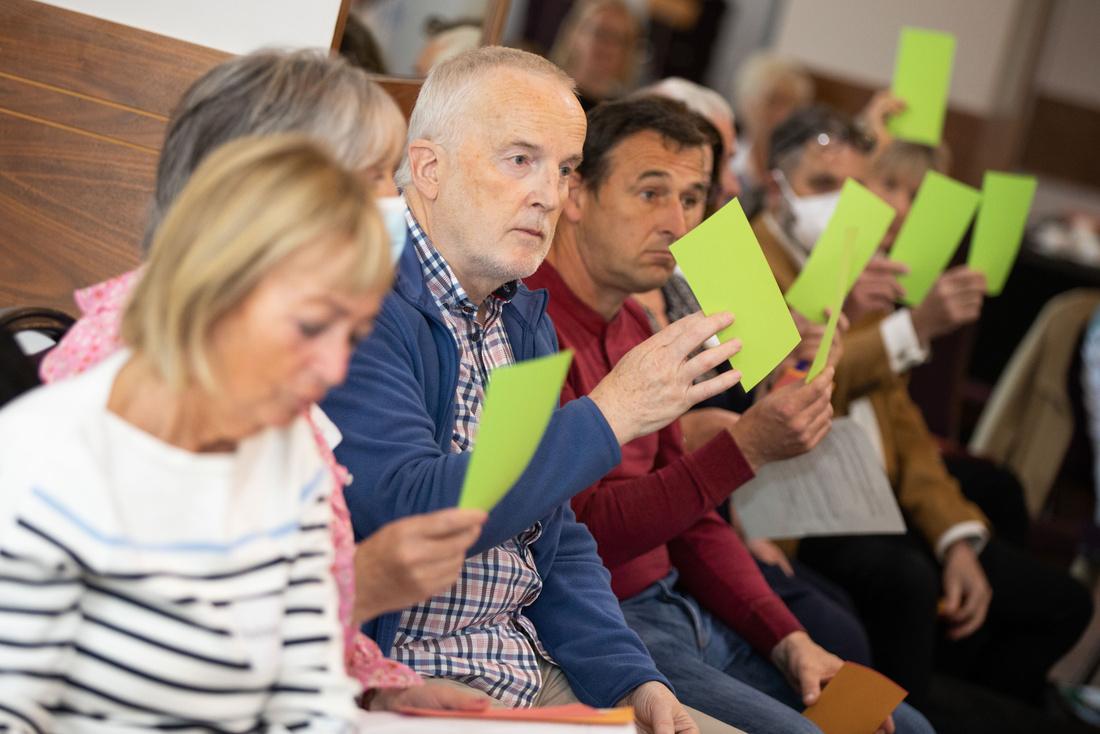
We recommend that a public information and awareness campaign around genomics provide impartial and accessible content, which has been codeveloped with representatives of the public. We recommend that additional content is developed for specific groups, such as patients with rare diseases; family members and carers; and researchers in the field of genomics.
We recommend that the approach to public health messaging in response to the COVID pandemic is reviewed, and that good practice and lessons learnt be incorporated into a public information and engagement plan around genomics. We also recommend that we learn as a society from our history of (poorly) managing public health issues, and that we adopt a new and citizencentered approach to managing tricky health topics, like genomics.
At the start of the jury, the jurors were invited to share their motivations for engaging with the topic of genomics. A selection of their responses are shared below to give an insight into some of their thoughts, before entering the process.
“We need to make sure that patients have the best treatments available to them, and that researchers can also developthose treatments, while respectingindividuals' right to control who has access to their data. It's about achieving a balance that suits people in Ireland.”
“The State should be the oregulator, r controller of how genomics is bto e used. The policy should be dto evelop an architecture garound enomics that ensures it is the tlong erm public interest for society tthat akes precedence over all cother onsiderations. The challenge will ibe n defining what is the i'public nterest' in this area ”
“Ordinary people are always in a position of playing catch up on new technological advances that will impact on their everydaylives, whether they like it or not. Genomics is very bigbusiness and checks should be put in place to protect citizens' rights as they try to navigate this extremely complex environment.”
“I feel it’s important to have da iscussion because any way uof nderstanding more about adisease, nd ways that could improve hour ealth and others, feels like a spositive tep.”
“It’s such a new concept there is so much potential for it at the moment so if its done properly to its full potential it could help so many people and it could be fantastic.”
During the jury process,
respond to a series of questions to
their attitudes; 20 jurors responded to the pre-jury survey, 18 responded to the mid-jury survey, and 22 responded to the post-jury survey.
All jurors felt like they knew 'a little' (11) or 'a lot' (11) about genomics by the end of the process. They started less certain with four initially declaring they knew ‘nothing’, 15 believing that they knew ‘a little’, and one claiming that they knew ‘a lot’.
12 jurors left the process with the opinion that genomic information is more sensitive than other types of health information (for example, mental health information or sexual health information) – more than double the number (5) who entered the process feeling this way.
From the beginning, nine jurors indicated that they were 'very comfortable' sharing deidentified genomic data across all three of the four defined purpose areas: service improvement, policy development, public research. For the fourth purpose - supporting private innovation - five of the nine were also initially ‘very comfortable’ sharing datatwo of the five left the process feeling this way, with the other three becoming 'somewhat comfortable'. Two jurors were originally 'very uncomfortable' sharing data, both changing to 'somewhat uncomfortable' by the end of the jury.
jurors finished the
have partial or full access to
other
eight more than in the
jurors began the process
support for the increased use of genomics. Exiting the process, 20 jurors responded favourably (selecting a ranking of 4 or higher on a 5-point scale) when asked whether we should be using genomics more in health care and research in Ireland. Two jurors did not change their opinion over the course of the jury (maintaining a ranking of 1.5 and 2.5, respectively). One juror left the process with a significantly less favourable view (dropping a ranking of 4 to 1.5).
what extent should we increase the use of genomics in individual care and treatment in Ireland?
is my opinion that
is my opinion
should not use genomics
should use genomics
care
care and treatment
treatment
Before jury After jury
In order to gather learnings from the jury process, the jurors were invited to share their evaluation of the experience as part of a post-jury survey 22 of the 24 jurors submitted responses (1 juror was unable to attend the jury day in person and felt that it would not be appropriate to respond, and 1 other juror chose not to complete the survey).

When asked to rate the experience, 77% (17) of jurors described the jury experience as excellent, a further 18% (4) described it as ‘very good’. One juror rated it as ‘not good’. 95% (21) of jurors said that they would recommend the jury experience to a friend, one juror was unsure.
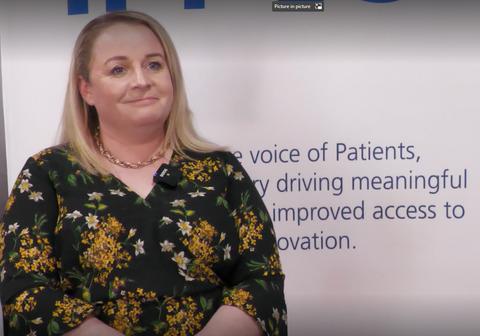
When asked about whether the process should be tweaked for future juries, 73% (16) of jurors supported the idea that jurors would be able to recall a witness to appear in-person during the deliberation day, 27% (6) were undecided as to whether this would contribute to the process.
When asked about whether the jurors should be able to call their own witnesses to appear before the jury, the jurors were split – 27% (6) of the jurors said yes, almost an equal number 23% (5) said no, and 50% (11) did not know.
When asked about whether the jury process could be longer, encouragingly a majority of jurors opted to dedicate additional hours to the process above and beyond the 16+ hours already given 77% (17) of jurors were willing to attend a two day (rather than a one day) in person deliberation, 9% (2) were unsure, 14% (3) were not willing. 86% (19) of jurors were interested in attending a one day pre-jury information event (instead of the 2hour online session provided), 9% (2) were on the fence, and 5% (1) was not interested.
This series of quotes taken from the post-jury survey captures a snapshot of the jurors' experience in various phases of the jury process.
“A slower pace would have been better for me. I learn mainly by reading; verbal presentation of information doesn't really work, even if I'm really trying to concentrate. I'd have got a lot more from the sessions if I had the text of what was going to be said beforehand.”
“What worked well was the breadth of information given to the jurors. I also found that the juror selection was strong, as all jurors were engaged in the process and many looked for plenty of information around the issue beyond what was provided.”
“The addition of a short multiple choice questionnaire afterwards could have allowed jurors to check their understanding at this stage before progressing to the witness presentations, and perhaps at other times in the process.”
“Honestly I thought it was done brilliantly. Everything was coordinated perfect and flowed well.
If I had to be pedanticSome more time in witness question sessions and the idea of a 2 day deliberation is great idea!”
“There was good comfort in the COVID protections in place from ventilation to CO2 monitoring.”
"This process was educational, self revealing and exceptionally well facilitated. It enabled each individual within a large group to be counted as an individual. If participatory processes involved these characteristics, then yes, the views of individuals taken in participatory approaches are extremely important. They could perhaps be used more widely in E.G. policy development. But participatory processes can also be done very badly, as I have experienced!! Where the individual can participate and still be ignored - steering committees, co-research, advisory committees currently being rolled out in public bodies. The way that the Citizens jury was handled was exceptional and a true participatory process, in my view!"
"It was helpful for each small group to concentrate on one problem rather than scattered across all nine problems.”
“I feel it is very important to get the public's view on as many issues as possible We don't have an opportunity to vote on many issues, usually only on representatives, so any attempt to involve the public in conversations about issues affecting the public brings us closer to a fairer and more democratic society "
"I think it is extremely important for policy makers to understand how the public reacts, dissects and digests detailed information on tricky issues like genomics. It will help them understand how best to communicate information and also helps them identify where there may be consensus and where there may be differences."
You have made it this far into the verdict report and now you hear there's more? Well, it’s true. By organising a citizens’ jury, we have sparked interest, started a public conversation, and suggested some ideas. But we have only really scratched the surface, topic-wise. We need others to now commit to continue this work – engaging more people, intensifying discussions, developing priorities.
Here in IPPOSI, we were delighted to see how far the jurors were able to get in debating the future use of genomics in health care and health research in Ireland. We were blown away by their enthusiasm and commitment during the process, and we were truly humbled to have been invited to listen in on their deliberations.
Be in no doubt it got confusing at times, and sometimes we didn’t know where the deliberations were going. Some will say we could have gone further or delved deeper, and perhaps we could have – but we worked with the time and resources available to us, and we are proud that we managed to create a space for public information, engagement and involvement around genomics.
The recommendations are not meant to be flawless; they are meant to reflect where the public is at in terms of attitudes, understanding, and expectations. There are some recommendations which are – to some degree – already in place; and there are other recommendations which may be too much of a stretch for us to realistically implement given the scale of the challenges currently facing our health system. But the jury verdict is more than the sum of its parts.
From this process we take away many insights and learnings, these are not necessarily things that can be backed up with figures and facts, but they are (we believe) nonetheless valuable and merit reflection.
There is a sense of resignation when citizens talk about the health system in Ireland. Many jurors questioned how we could hope to offer individuals the chance to have their genome tested and their results collected in a national database for research projects, if we cannot get people off trolleys and into hospital beds.
There is a clear consensus that citizens need to be involved in designing a better health system and that an honest and practical conversation is needed around what citizens expect, where the system is currently at, and how we bridge the gap.
There is a clear need to explain and deepen the public’s understanding of important topics, such as data protection, data sharing, and consent. Many jurors acknowledged that these topics transcended health, and that there was therefore real civic value in making sure that they are properly understood.
There is a strong appetite among citizens to be included in discussions around complex health issues, such as genomics. Many jurors displayed a sense of urgency when interacting with the jury process, suggesting that they needed to get what they had come to say on the record and that there may not be another opportunity to do so. Most also confirmed they would happily participate in a longer jury process.
There is a preference for making complex health topics ‘human’ and for focusing on ‘values’. Many jurors shared their personal experience of health care or research, describing what promotes respect and empowerment. Others used the collective experience of COVID-19 to illustrate novel approaches to transparency, accountability, and public participation.
There is often a knee-jerk reaction from citizens to call for more legislation, more regulation, more policy, and more processes when they feel unsure or unprotected. Many jurors called for more attention to be given to helping citizens understand the current framework and to promoting discussion around the gaps.
There is an expectation that Ireland should keep apace with other European Member States in terms of the use of genomics in health care and health research, but that a step-wise approach, which is informed by the experiences of others, could be adopted given that we are starting from behind.
There is a lack of confidence in the health system to appropriately manage data. Many jurors indicated a preference for ‘opt-in’ rather than ‘opt-out’ consent models, presumably to counter the perceived shortcomings.
We hope that these observations are useful in sharing ‘a view from the outside’, they are not meant as criticism, they are meant as feedback. In rebuilding and modernising our health system, we know that there is a difficult balance that needs to be struck between ‘keeping the lights on’ and ‘creating a health system to be proud of’. But we also trust that people are mindful of and sympathetic to this challenge, especially when they are informed of, and actively engaged in, collectively designing a health system for the future. We believe new and dynamic approaches to consultation are urgently needed to allow for timely, accessible, and sustained engagement between health leaders and policy makers and members of the public.
Here in IPPOSI, we like to think that we have provided an opportunity for information and engagement, and we hope that for four weeks of this year discussions around the dinner tables at the homes of the 24 jurors turned to something different – the future use of genomics in health care and health research in Ireland, and the role of the citizen in shaping this future.
This second IPPOSI Citizen's Jury took the relentless support of many partners to complete. We wish to thank them all.
The first mention is to the IPPOSI members who provided financial support in the form of unrestricted grants. These include Irish Society for Human Genetics, Roche (Ireland) and Pfizer (USA)
Our facilitator, Dave Dunn (dave.dunn.ie) deserves special recognition for his role in the jury success. He is not only responsible for the jury design, but he managed to set a positive and focused tone throughout the proceedings, carrying everyone through a new and challenging process with ease!
Similar acclaim is reserved for June Shannon, our independent rapporteur and author of this jury verdict report. June kept the public record on track with her updates and has delivered an insightful, balanced, and comprehensive commentary of the deliberations.
Without the advice of our Oversight Panel members, it would have been impossible for the project team to progress through the various stages of the jury process in a meaningful way. The Panel members showed commitment, flexibility, and good humour in meeting our repeated requests for guidance - we thank Prof. Gianpiero Cavalleri (RCSI), Dr. Aisling de Paor (DCU), Sara Hurley (2021 citizens' jury member), Dr. Avril Kennan (HRCI), Anne Lawlor (22q11 Ireland Support Group), Prof. Mark Little (TCD), Dr. Sally-Ann Lynch (CHI Crumlin), Dr. Teresa Maguire (HRB), Vicky McGrath (RDI), Kevin Molloy (2021 citizens' jury member), Dr. James O'Byrne (Mater Hospital), and Dr. Emily Vereker (NREC).
Numerous others supported us along the way a team of independent facilitators (Michael, Lorna, Laura, Mandy, Una, Liadain and Steven) chaired our small group sessions; and an expert health informatics team led by Prof. Mary Sharp (TCD) performed the all-important juror selection (thanks again Oisin!). We also thank our expert witnesses for their time & effort. Thanks also to Philip for designing the graphics.
A special thanks to our jurors – they made the jury! We learned so much from you, and we shared laughs and banter during the Zoom sessions and in-person. An extra thank you to jurors who volunteered to work with June to prepare this report (Darragh and Eva), and to the jurors who are presenting the findings to policy-makers.
Finally, we thank the staff in the IPPOSI office, particularly our Citizens' Jury Coordinator Jen Moran, and our Research & Advocacy Manager, Laura Kavanagh
Individual 30 minute Zoom calls between independent facilitator and jurors
May 9-20 1-to-1 calls
Intro Tech setup Format overview Available supports
Reminder of process of consent Privately ask/answer questions
90-minute juror connecting session
Mon, May 23 & Wed, May 25 Group sessions
Expectations of jury experience Discuss group behaviour expectations Trial online participation tools
Thurs 2 June
Pre jury information session
Intro to genomics (terminology & concepts) with Aoife McLysaght, TCD and Sally Ann Lynch, CHI
Tues 7 June Session 1 Witness testimony
Thurs 9 June Session 2 Witness testimony
Tues 14 June Session 3
Thurs 16 June Session 4
Sat 25 June Deliberation day
testimony
testimony
person deliberations
from Owen Smith,
Testimony from Courtney Hosp,
disease parent
Testimony from Mervi
FinnGen
Testimony from Ruth Davis, Law Library
from
Cavalleri,
from Natalie Banner, Genomics England
from jurors Breakout groups
Testimony from Olga Cronin, ICCL & Simon McGarr, Digital Rights
Testimony from Jaap De Boer, Novartis Breakout groups
from jurors
to witnesses
from Avril Kennan, HRCI
Learning from the first IPPOSI citizens’ jury, one of the goals of the second jury was to provide jurors with factual information around the topic of genomics in advance of discussion and deliberations. A 2-hour virtual pre-jury information session was organized with support from Aoife McLysaght, TCD, and Dr Sally Ann Lynch, CHI Crumlin & Temple Street. Outside of COVID times, this session would be done in-person.
The following information was imparted during the 2 June pre-jury information session and this summary was endorsed by jurors as an accurate account of proceedings. Jurors agreed that the facts provided had been made and understood.
Point 1
Cells are the building blocks inside our bodies. Chromosomes are found inside cells. We have 23 pairs of chromosomes which are long strings of DNA. Genes are found on chromosomes. Genes are segments of DNA that code for a protein, or that make an RNA (protein-coding genes and RNA genes). We have about 20,00025,000 genes. Only 1-5% of our genome is genes, a lot remains unknown about the rest of our DNA.
DNA is made up of four chemical letters – A, T, G, C. There are approximately 3billion letters in the DNA which makes up each of our bodies. The total DNA is referred to as our genome.
A DNA ‘mutation’ is literally a ‘change’ in the DNA sequence. This can be one letter replaced with another; one or more letters added or deleted; or a bigger segment of DNA that has extra or fewer copies in the genome.
Point 4
Around 99.9% of our DNA is the same between non-related humans, and it is the 0.1% which makes us all unique. Usually, these DNA differences have no effect at all (they are in non-functional parts of the genome). Even those that do have an effect are often not a problem – affecting our height, our eye colour and lots of other variation. Sometimes these differences are a problem – they are changes in an important part of an important gene that affects our health. For example, the common mutation that causes Cystic Fibrosis is the deletion of 3 letters in the middle of the gene that means the protein produced by the gene doesn’t work properly. Anyone who inherits two faulty copies (one from each parent) will get the disease.
Point 5
Diseases may be caused by mutations in a single gene (mono-genic) or mutations across several genes (polygenic). Genetic tests are where you test for known mutations in one or a small number of genes, usually because of a clinical diagnosis by your doctor. Genomic testing is not targeted like this and it generates sequence data across the entire genome to survey a larger number of candidate genes, and your doctor may not necessarily know what they are looking for.
Genomic testing involves genome sequencing. Genome sequencing can be carried out on a sample taken from an individual – blood, tissue, saliva. Scientists compare the sample taken from the individual with samples taken from thousands or millions of other people, to look for differences or mutations in the sample taken from the individual requesting the test. The more people who have their genome sequenced the more information lab scientists and doctors have to compare samples and the more we can learn about DNA.
Point 7
Normally a doctor requests that a specific part of an individual’s genome be compared against the same specific part of other people’s genome A whole genome comparison is not typically done. There are variations in the information returned from scientists in laboratories in the EU and scientists in laboratories in the USA. Equally there are differences between commercial and non-commercial laboratories. Following guidance here is key, and consent is extremely important. You cannot sequence a whole genome by accident, it can only be done deliberately.
Sometimes scientists may find a known disease-associated mutation, and others they may find no known disease mutations. Sometimes years later (after more and more samples have been added and after we learn more about DNA) they may be able to understand the significance of a mutation that was identified in the sample.
Finding a difference or mutation can be helpful in providing individuals with a cause for their symptoms or condition (sometimes known as a diagnosis), differences or mutations can also help doctors identify treatments or medicines which may suit the particular ‘genomic profile’. It can also be helpful for families (children, siblings, parents) to know about differences and mutations to inform their own health.
Finding a difference or mutation can also be difficult as not everyone who is identified as having a difference or mutation will develop the associated health risk – many factors influence how susceptible we are to these differences or mutations in our DNA including lifestyle and environmental reasons.
Dr Sally-Ann Lynch proposed a number of acronyms to help the jurors understand key principles and processes relating to genomics.
A total of nine expert witnesses addressed the jury. Here is a copy of the session reports prepared by the independent rapporteur detailing the witness' intervention. Jurors received a copy of these reports as a reminder of what was presented and discussed in each session.
“We used to carpet-bomb a scenario (via chemotherapy) as opposed to looking at what's driving the cancer and trying to hit the driver...(genomics is) a bit more like sniper shooting."
Prof Smith’s presentation to jurors centred on ‘Integrating Genomics into Irish Healthcare,’ and he provided a detailed overview of the policy situation and Government position regarding the future of genomic medicine in Ireland.
He also explained that by the age of 50, children and adolescent cancer survivors would have an average of 17 chronic conditions as a result of the “carpet bomb” approach of chemotherapy.
He said there was a need to redefine what being cancer free looks like, its not just cancer free its all of these chronic diseases free and the only way we can do that is to understand what is happening at the genomic level into why certain people are more predisposed to toxicity than others.
Jurors asked Prof Smith whether he thought any real progress in this area can be realistically achieved given other priorities and challenges in the health system and past delays with the genomic agenda.
Prof Smith acknowledged that there had been delays however, he said he was “very confident” that a new National Genetics and Genomics Strategy would be funded from 2023.

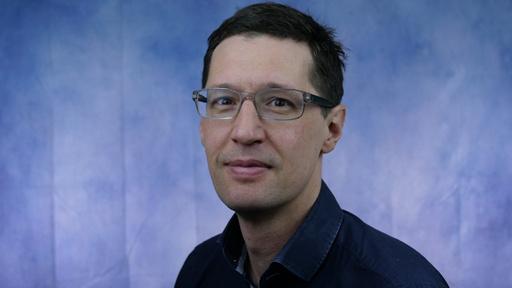
“Should we consider an Irish public genome project?...Genomics is touching our every day lives - we saw that during COVID - we now need to communicate the value of engaging in genomics research to the public. "
Dr Cavalleri said his brief at the citizen’s jury was to speak about genomics research in an Irish context.
He had three take home messages:
Research on human genomics is important for the health and wellbeing of our society
Genomic research is more impactful when it sits close to the hospital, with scientists and doctors working closely together to understand disease. Sharing of genomic data accelerates discovery.
Asked about trust and building trust Dr Cavalleri said it was important to have public involvement in the design and decision making of any public genome project. He said the public voice has to be central to the effort. Members of the public must be centrally involved. Genomics is touching our lives every day we need to understand and communicate the value of it to the public.
WHO: Courtney Hosp, parent of a child with a rare genetic condition
WHAT: The patient perspective on genomics
“I am just a mom who had to learn about genomics in a really fast, really quick way and make some really big life decisions about my child when we received a totally unexpected diagnosis."
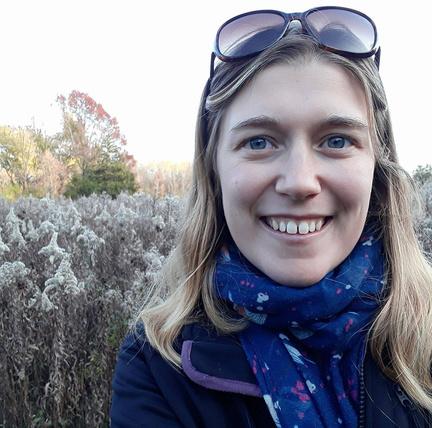
Courtney Hosp was invited to share the patient perspective on genomics and shared her personal story with the jury.
Courtney who is originally from the US introduced the jury to her 6 year old daughter Nuala who was diagnosed with a rare condition called Craniosynostosis - a birth defect in which the bones in a baby’s skull join together too early.
Courtney recounted her experience of signing up along with her husband and child to the 100, 000 Genome Project in the UK and discussed the hopes, benefit and challenges associated with it.
Courtney advised jurors that the process was very slow. The family signed up to the 100,000 genome project in July 2017 and to date (June 2022) while they have received Nuala’s results, Courtney and her husband Cian are still awaiting theirs. Nuala’s whole genome sequencing results did not find any genetic reason for her condition.
Outlining the “hopes and benefits” of their involvement with the 100,000 genome project, Courtney said they included: the hope that one day they will have information to share with Nuala which might help her if planning her own family in the future, the societal benefit - that Nuala’s whole genome sequencing may help other families in the same situation, and the benefits Nuala’s genomic information may have for future research, diagnostics and treatment for craniosynostosis.
Courtney explained that when you have whole genome sequencing the information is retained and can be re-analysed against future medical developments. Nuala’s genome will therefore be regularly checked by the 100,000 Genome project and there is a hope that one day she may get more information on her condition.
Courtney also discussed the “dangers and worries” of being involved in the project which she said included, that if her results show she is at increased risk for a certain condition is she obliged to share that with a health insurance company as a pre existing condition? And the worry that her results may show that she has a predisposition to developing a serious condition in the future.
“I am just a mom who had to learn about genomics in a really fast really quick way and make some really big life decisions about my child when we received a totally unexpected diagnosis,” Courtney said.
"
The close integration of genomics with the NHS was a very big driver for the 100,000 genomes project. We wanted to see if it was possible to integrate whole genome sequencing into the health care system for some cancers and for rare diseases. We are now using the data we are gaining from the 100,000 genomes project to do good research essentially, to create a really big data resource for genomics healthcare."
Dr Natalie Banner, Director of Ethics, Genomics England (a national public genome project) spoke on public views and expectations of genomics.

Dr Banner shared some findings from UK research studies on public awareness and attitudes to genomic medicine, which revealed:
1 in 3 people have some familiarity with terms like genetics, genomics or DNA Genetic research elicits “hopeful”, “optimistic”, but also “cautious” and “concerned” reactions
There is broad support for genomic data use for health research More understanding of genomics doesn’t mean more positive attitudes Knowledge of genomics varies across rural/urban, educational attainment and ethnic splits.
In relation to the UK public’s main concerns about genomics, Dr Banner said these included:
Accuracy and reliability of genomic testing
Control and data security Impacts on clinical workload
Dr Banner introduced some genomic healthcare projects that are currently underway in the UK such as the 100,000 Genomes Project.
Finally Dr Banner posed a number of speculative questions on the use of genomics outside of healthcare from a recent UK report called Genomics Beyond Health.
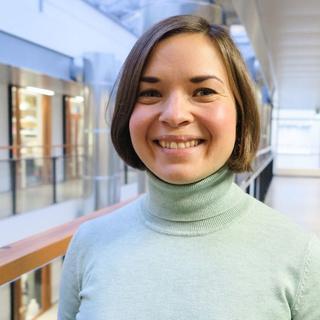
Mervi was invited to share an international experience of genomics as a representative of FinnGen, a national genome research project in Finland.
Mervi explained that FinnGen was a large genetics research project that does not provide diagnostic results to participants but rather uses genomics data to better understand human disease.
FinnGen is a ten-year project with the first six years dedicated to data generation and collection. However Mervi said that it had already begun to carry out genomic research.
She spoke about the benefits of FinnGen being located in Finland and about the company’s aim of generating genome data from half a million Finnish individuals. She explained how they would combining it with their health register data from national health registers, and use that genetic and health register data to better understand thousands of human diseases.
She discussed the existence of Finnish biobanks and enabling legislation in Finland as well as the openness and willingness of the Finnish population to provide their data without any real reward except for knowing that they were helping to advance research.
Mervi explained that FinnGen was a public-private partnership funded by a mix of funding from the Finnish government and 13 international pharmaceutical companies. There are currently 22 partners in FinnGen she said nine of which are from Finland and 13 are international.
“Medical practice has got used to treating patients on the basis of average…quite rarely do any of us keep to that exact average…we need more personalised treatments and in order to be able to develop those we need to study really large patient cohorts and do a lot of research so that’s what we’re aiming to do at FinnGen."
“DNA is a source of information. Information leads to knowledge and knowledge leads to solutions....Our ambition is to have a huge impact on the lives of individual patients and their families by developing therapies for members of those families who suffer with rare diseases."
Dr De Boer was invited to speak with the Citizen’s Jury to give the pharmaceutical or private industry perspective of genomics.
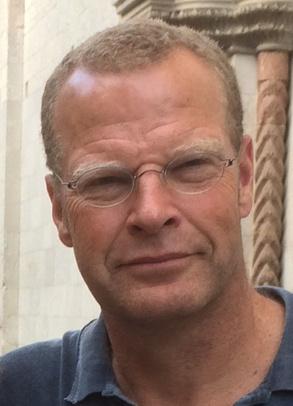
Dr De Boer spoke about the importance of genomics for the treatment of disease especially rare diseases.
“DNA is a source of information, and information is knowledge, and knowledge leads to solutions,” he said.
As a specialist in rare diseases he spoke about how they impact patients with many dying before the age of 5.
“We use genomic data to make treatments that change lives, treatments that are designed using that genomic data. There are only a few today, but we hope there will be many in the future”, he said.
He spoke about the benefits of public-private partnerships and used the example of a disease called SMA in children. Spinal Muscular Atrophy (SMA). SMA is a rare genetic disease that causes high mortality among young children.
He also spoke about consent and safety of data.
He discussed the importance of prevention and early diagnosis of rare treatable genetic diseased and said it was possible to add more tests to Ireland’s heel prick test carried out on new born babies such as one for SMA.
“It's not enough to have amazing new treatments such as gene therapy available in Ireland. Irish patients and families also deserve to have accompanying diagnostics,” he said.
Ruth Davis, Phd (Microbiology) and BL – Ruth is a barrister at law with extensive experience in supporting rare disease patient research and advocacy.
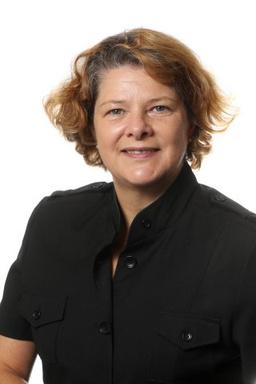
Ruth Davis was invited to address the jury on the societal, ethical and legal issues in genomics in just 15 minutes; a task, which she acknowledged, was “a huge challenge.”
Ruth commenced her presentation by stating “your DNA is not yours alone.”
In her address to the jury Ruth delivered four key messages:
Genomic information is different to other healthcare information. It relates not only to the individual but also to the individual’s family. There is a societal benefit to having access to genomic data from a scientific point of view. But there is also a societal benefit to patient confidentiality, all of which needs to be balanced with the duty of care to other people within the family. Informed consent is a very significant basis by which people give expression to ethics and their ethical duties.
There are legal protections for individuals, however they are based on older data protection or data principles on health status that don't always accommodate the specific challenges presented by genomic data.
“We have to start talking about these social and ethical issues, because this (genomic) research is already being undertaken and we need to talk about it straight away."

Olga and Simon were invited to speak from the perspective of data protection and human rights.
Speaking first, Simon said that their main proposition for the Citizen’s Jury on genomics was that what was preventing genomic data from being collected and used for the benefit of society at large, was not regulation or controlling access to that data, but rather a failure to place the patient at the centre of the process.
He said that Ireland has not failed to collect genetic data, but it has failed to collect it in a way that it could be used. He gave the example of Ireland’s heel prick test, which he said was akin to a large genetic database and he outlined the problems associated with the consent process around the heel prick test which led to many challenges.
He said it was vital to have a consent-based patient centric system to collect medical information including genetic data.
If you do not have a consent based, patient centric system for collecting data, you end up with what can be a “stranded asset” – it looks valuable, but it cannot be used, Simon advised.
The heel prick test is still done today but the correct consent procedures are in place.

“Ultimately, the primary goal of processing genomic data should be about improved healthcare for individuals and it should never harm any individual. But at the heart of all of that, you know, it is all about consent, fully informed consent."
Olga Cronin, from the Irish Council for Civil Liberties then took over from Simon and spoke to the jury about Genomics Medicine Ireland (GMI) and how “exceptionally sensitive personal information” ended up being owned and controlled by a private firm.
Olga said that GMI built its database of Irish genetic data by collecting data from publicly funded entities such as hospitals, universities, research facilities and charities.
“You can't have medical research without consent. It's just not acceptable here in Ireland......If you don't put that (consent/trust) at the heart of your plan, your plan is not going to succeed in our opinion."
Therefore “it's database was generated using Irish taxpayer funds but instead of Irish researchers getting to use this resource, and even those who have consented to the data being collected and their families benefiting from that research...the company that now has it makes money by selling access to that database to third parties.”
“So, in our view, this is a crushing loss for the people of Ireland,” Olga stated.
Simon then took over from Olga with another example of how things can go wrong with genomic databases/projects if the patient is not placed at the centre of the process from the start.
He outlined the case of care.data programme, which aimed to extract anonymised data from GP records across the UK, pool them into a central database and allow researchers to access the data. He said that after almost 25 years of planning care.data was launched in 2013.
The care.data project cost approximately €10 million however, Simon said that when it was finally launched it “burst into flames.”
In conclusion Simon said that genetic medicine “offers enormous value” and the collection of genetic data and allowing access to that data by researchers “offers loads of potential value.”
“We don't want to see plans like care.data, like the genomics investment, like the heel prick test to fail, because the plan doesn't take account of putting the patient and their rights and crucially, the trust that is built up by valid informed consent. If you don't put that at the heart of your plan, your plan is not going to succeed in our opinion,” Simon said.
“I think we have some of the baggage of the past to overcome. But I think that there is a willingness out there among the Irish public to share their data for the common good. I think the Irish are actually very altruistic as long as you focus on building that trust from the very start."
Avril was invited to share her perspective based on her experience engaging with patient organisations and research partners and focused on sharing her thoughts on the policy opportunities and gaps – including the need for a role for public and patients.
Avril used an analogy of developing a community garden to show what might be needed to develop a genomics policy in Ireland.
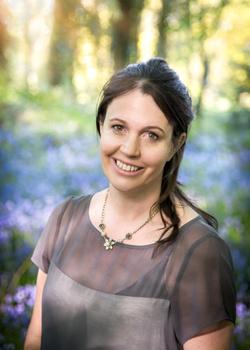
She took jurors through the 6 steps needed to create a community garden/develop a genomics policy in Ireland and she also underlined the importance of PPI in the development of any genomics policy for Ireland.
Building community trust and shared ownership of the community garden
Patient and public involvement (PPI) from the earliest stages (to guide on needs, privacy, secondary findings, consent processes etc.)
Preparing the soil
These are things we need to get right: data infrastructure, legislation and policies/standards, consent, and workforce training.
Planning to make lives better through the garden
Genetic services for information and counselling – diagnosis, faster diagnosis, diagnosis that is explained properly, guidance on prognosis, family planning including fertility, support and insights into the drugs that will work best.
Securing investment for the garden from the council
Leadership – the appointment of a national director and other supportive roles, and a public genome project with public-private partnership.
Announcing the garden
When developing a genomic policy for Ireland there needs to be a public health information campaign.
Learning and sharing about community gardens internationally
Learning from other countries about best practice in genomics healthcare and research. Enriching our efforts through combining data across borders (with consent).
Asked for her final comments on the jury’s task ahead, Avril advised members not to get too bogged down in the expertise/specialist knowledge or complexity of genomics, as there were experts available to do that. Instead, she said jurors should focus on bringing a public perspective to the process.
“What we can do is bring that public perspective and that's more than enough. And I think the key piece for me is the PPI piece, and not just at the start and not just at the end but all the way through and thinking about every step that that should be involved. Because if we don't get that right, nothing happens,” Avril commented.
The Oversight Panel met four times (Jan. 28, Mar. 8, Apr. 7 & May 19) to discuss and advise on juror recruitment, the jury mission, jury design, witness selection, surveys, reading materials & case study development.
Prof. Gianpiero Cavalleri, SFI FutureNeuro Research Centre, Prof of Human Genetics, RCSI University of Medical & Health Sciences; Deputy Director, FutureNeuro
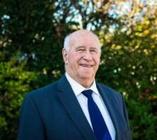
Dr. Aisling de Paor, Law Firms Liaison Officer and INTRA Coordinator, School of Law and Government, Dublin City University

Sara Hurley, 2021 IPPOSI Citizens’ Jury member

Dr. Avril Kennan, CEO, Health Research Charities Ireland
Anne Lawlor, Founder & Chairperson, 22q11 Ireland Support Group


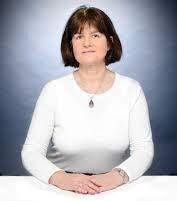

Prof. Mark Little, Professor of Nephrology (Clinical Medicine), School of Medicine, Trinity College Dublin

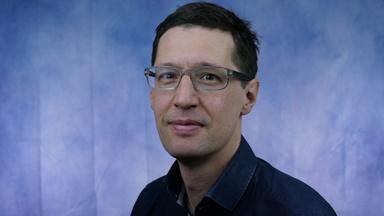
Dr. Sally-Ann Lynch, Consultant Clinical Geneticist, Children’s Health Ireland (CHI) at Crumlin & CHI at Temple Street

Dr. Teresa Maguire, Director of Research Strategy, Health Research Board Vicky McGrath, CEO, Rare Diseases Ireland Kevin Molloy, 2021 IPPOSI Citizens’ Jury member
Dr. James O'Byrne, Consultant Physician, National Centre for Inherited Metabolic Disorders, Mater Hospital

Dr. Emily Vereker, Head of the National Office for Research Ethics Committees
